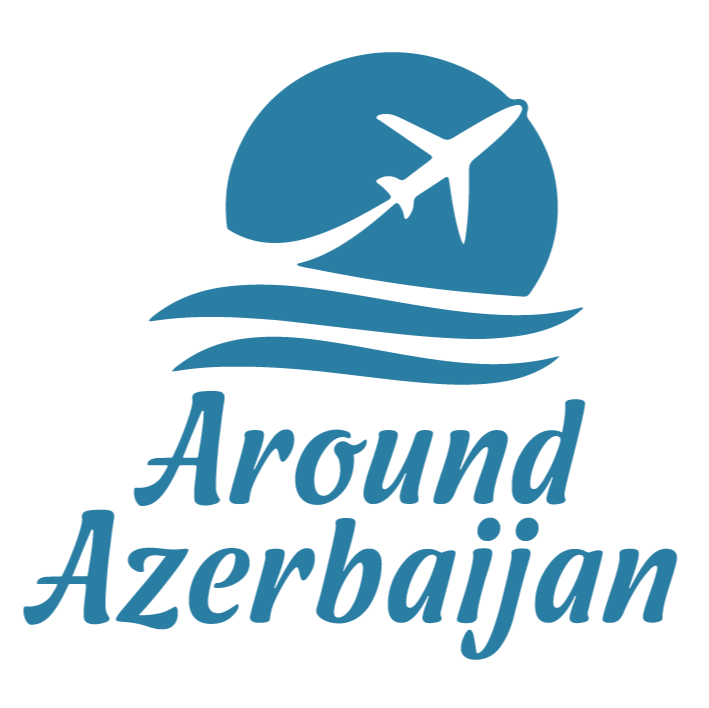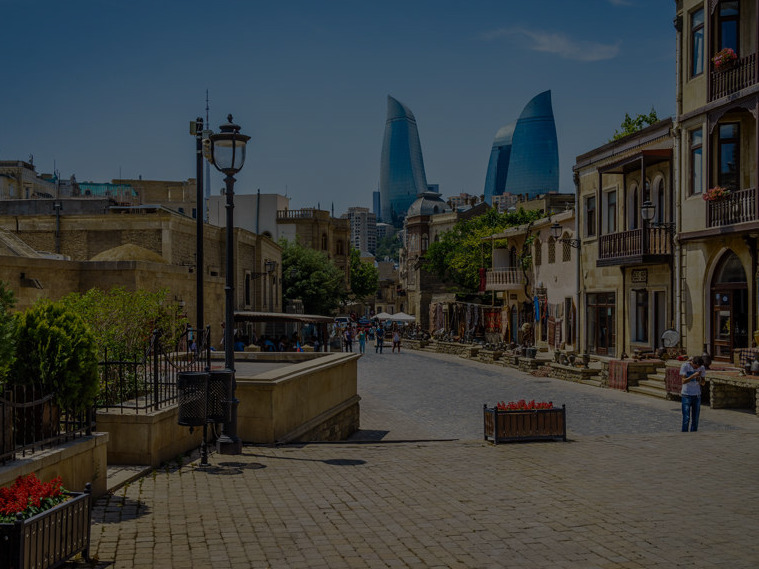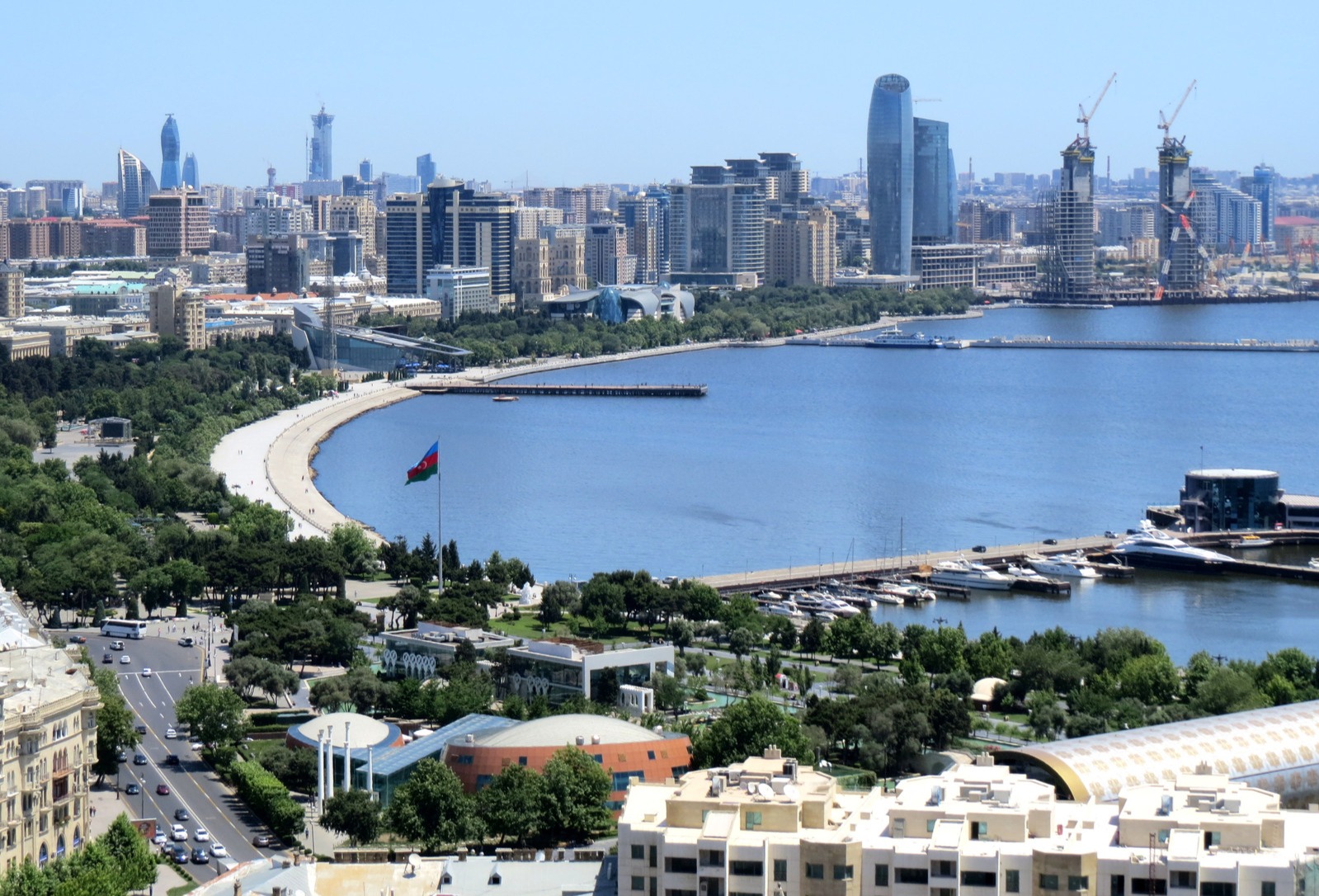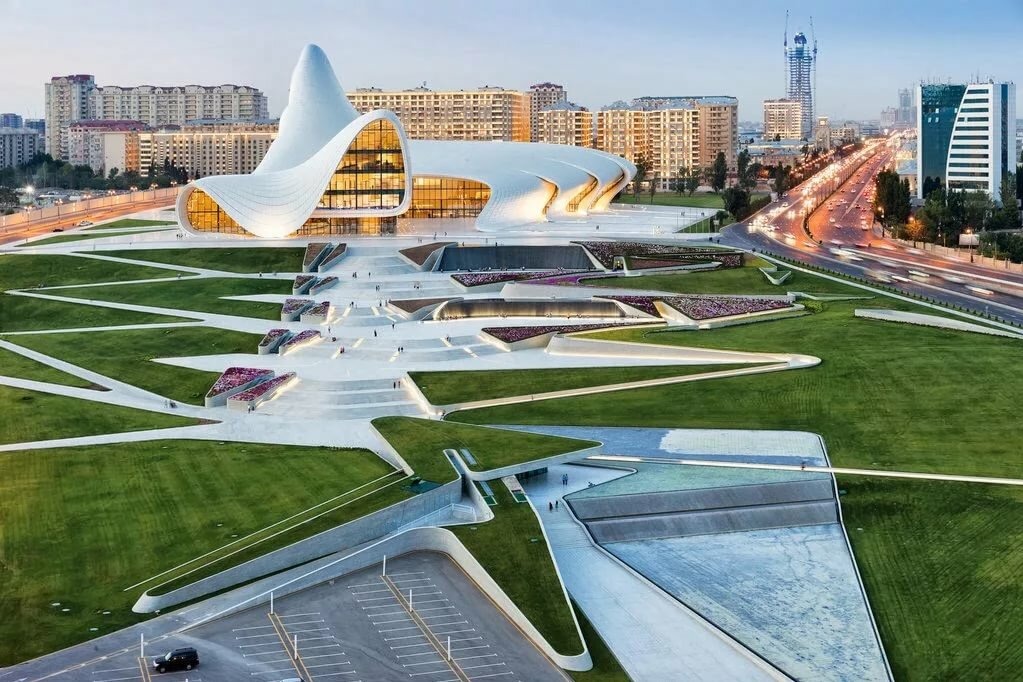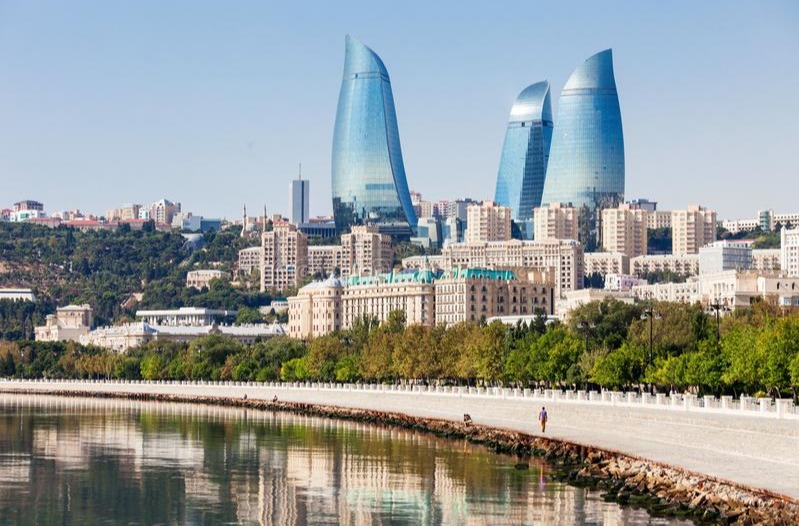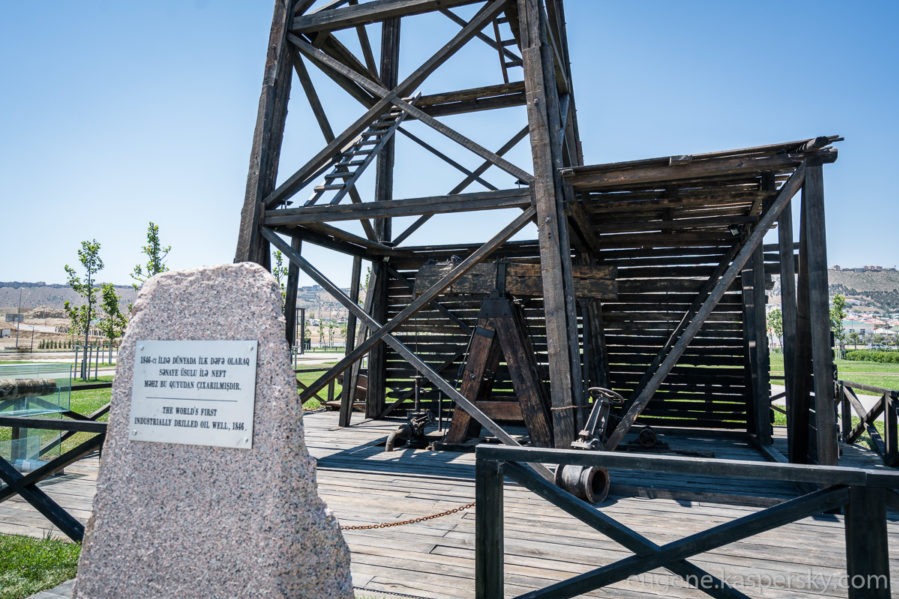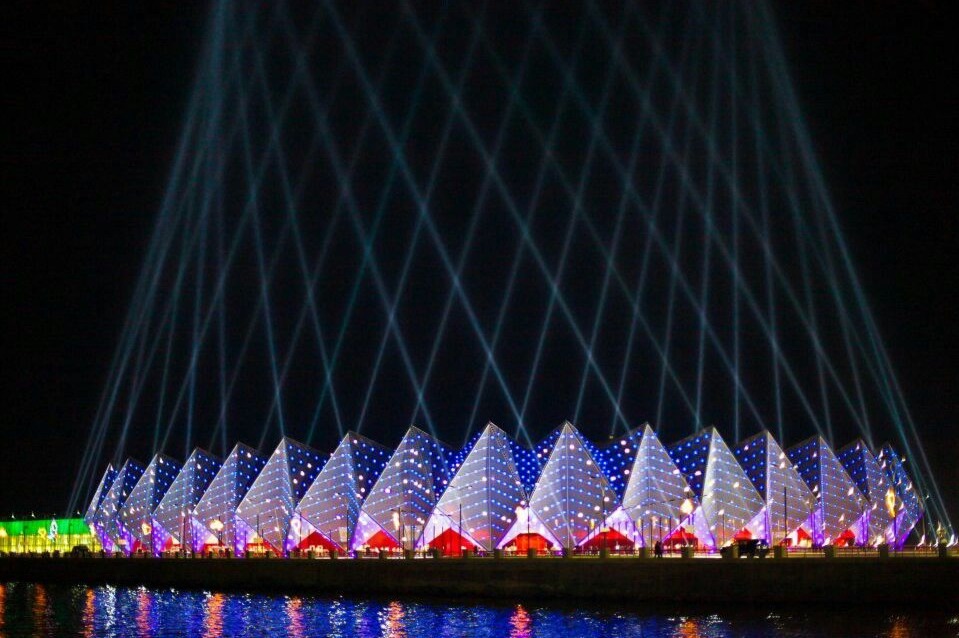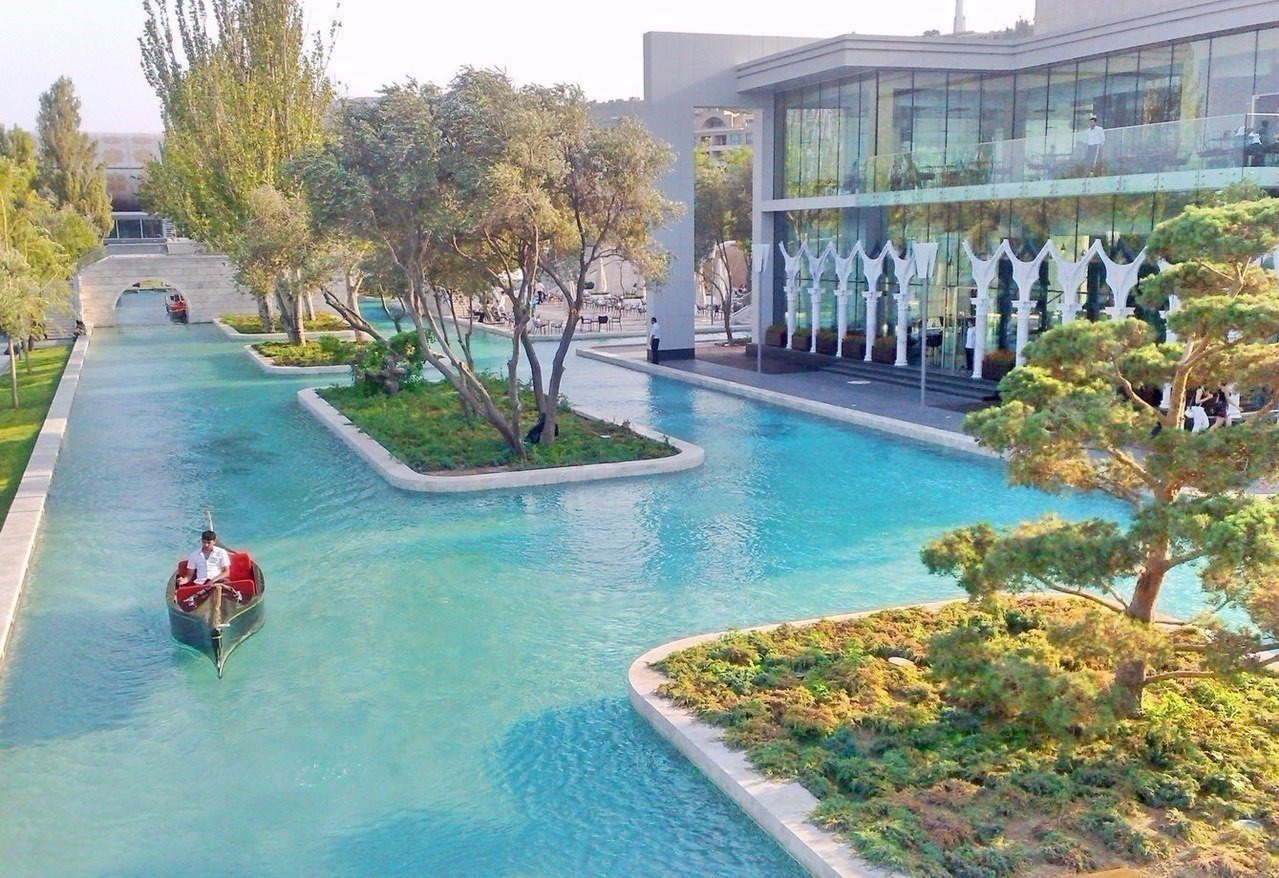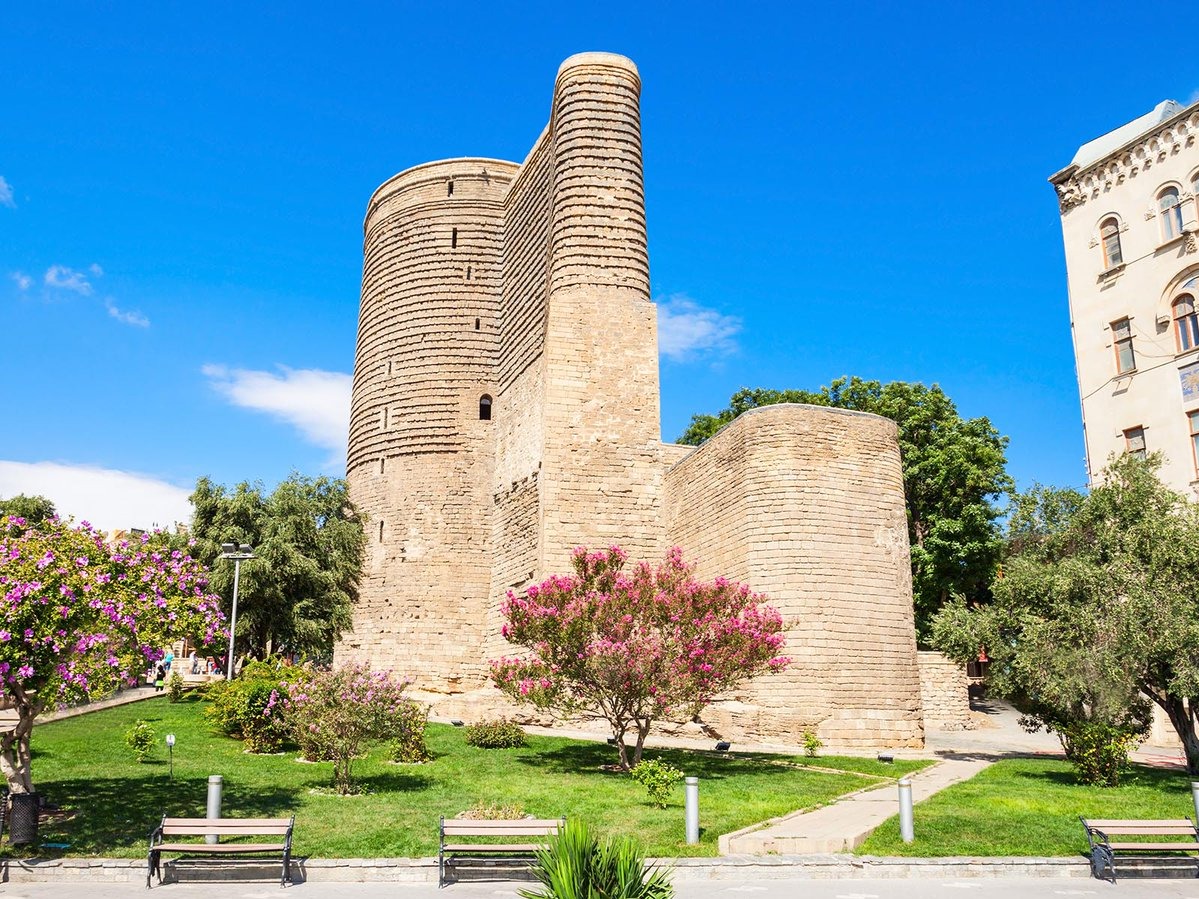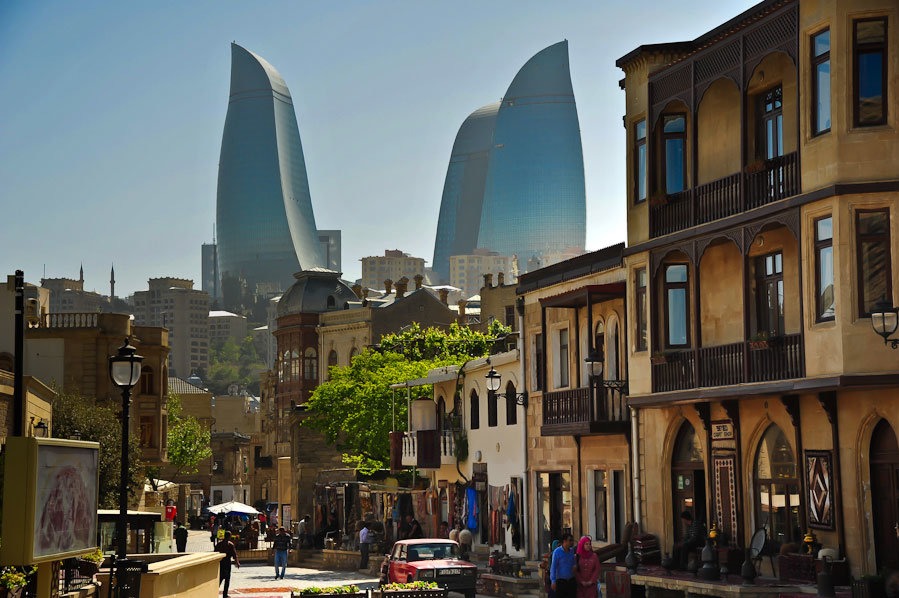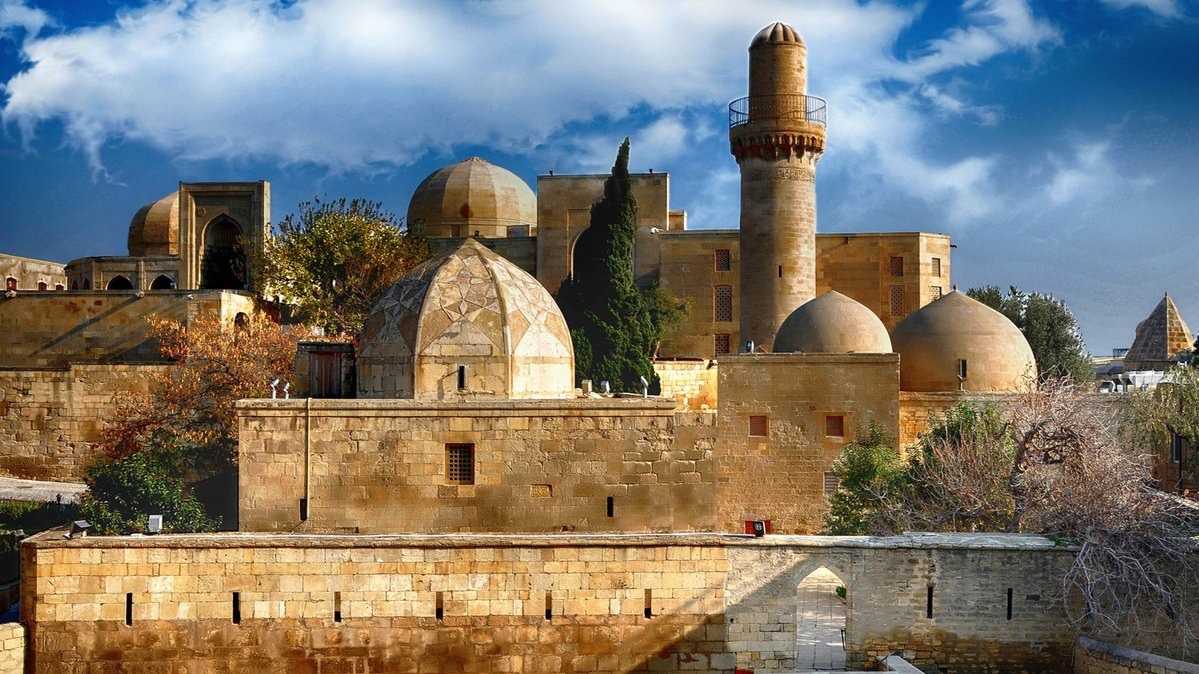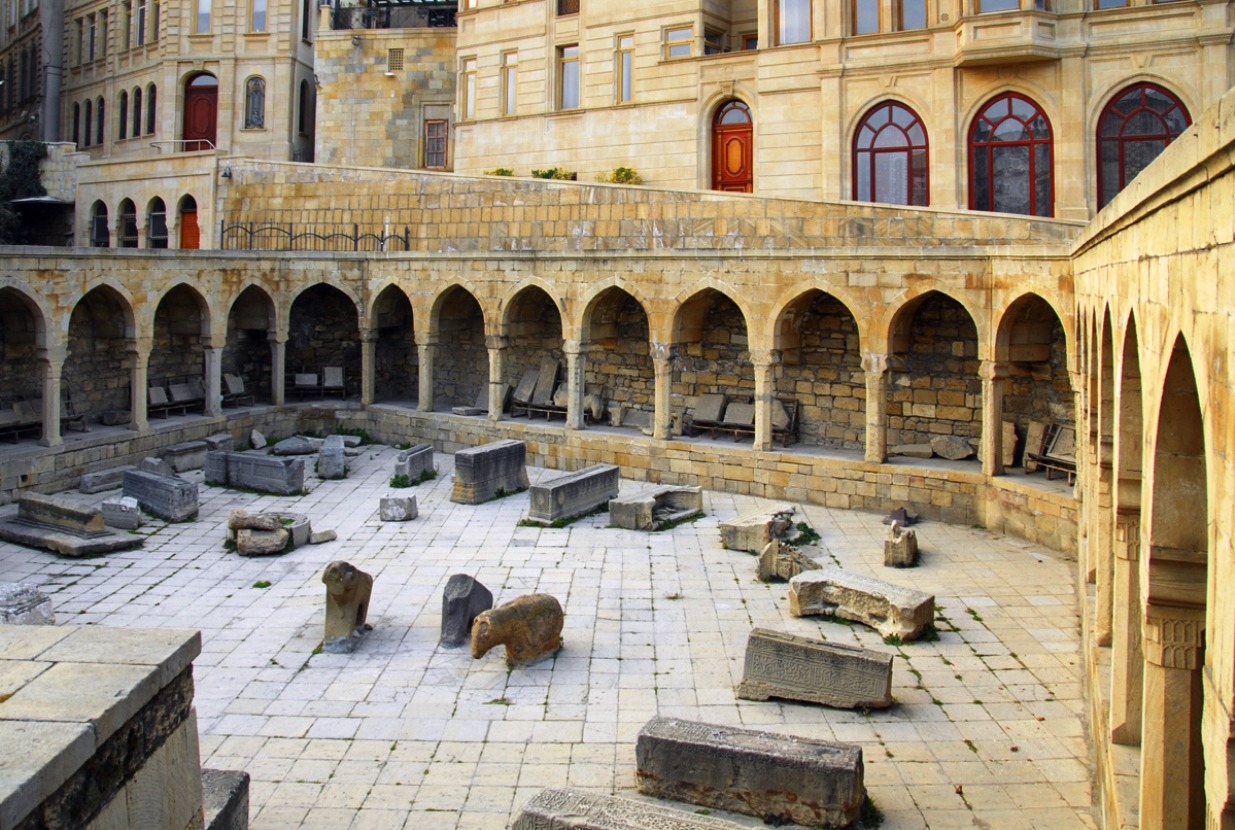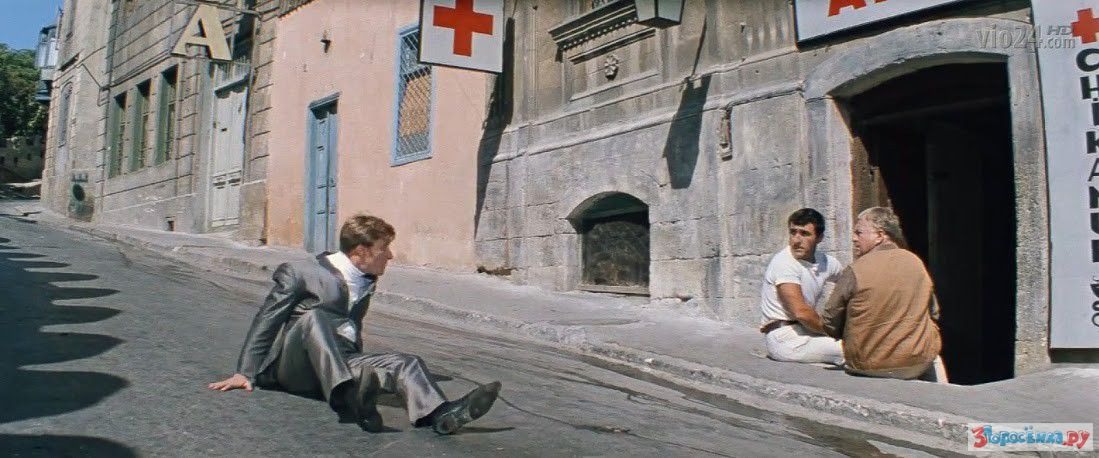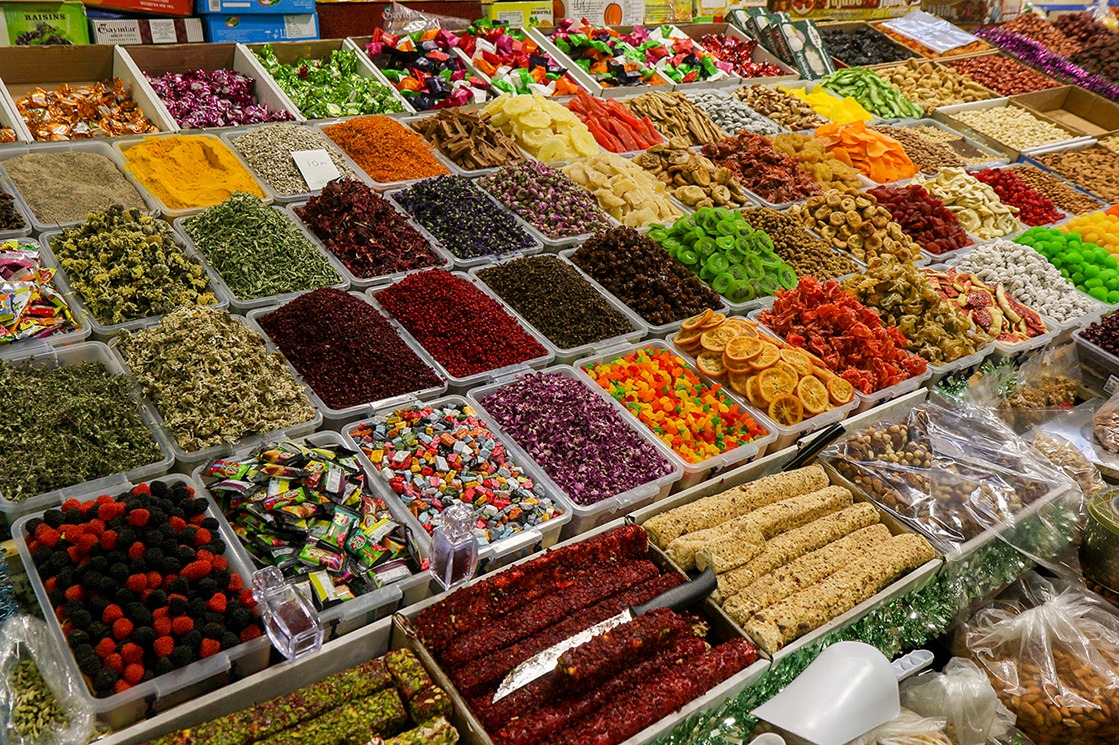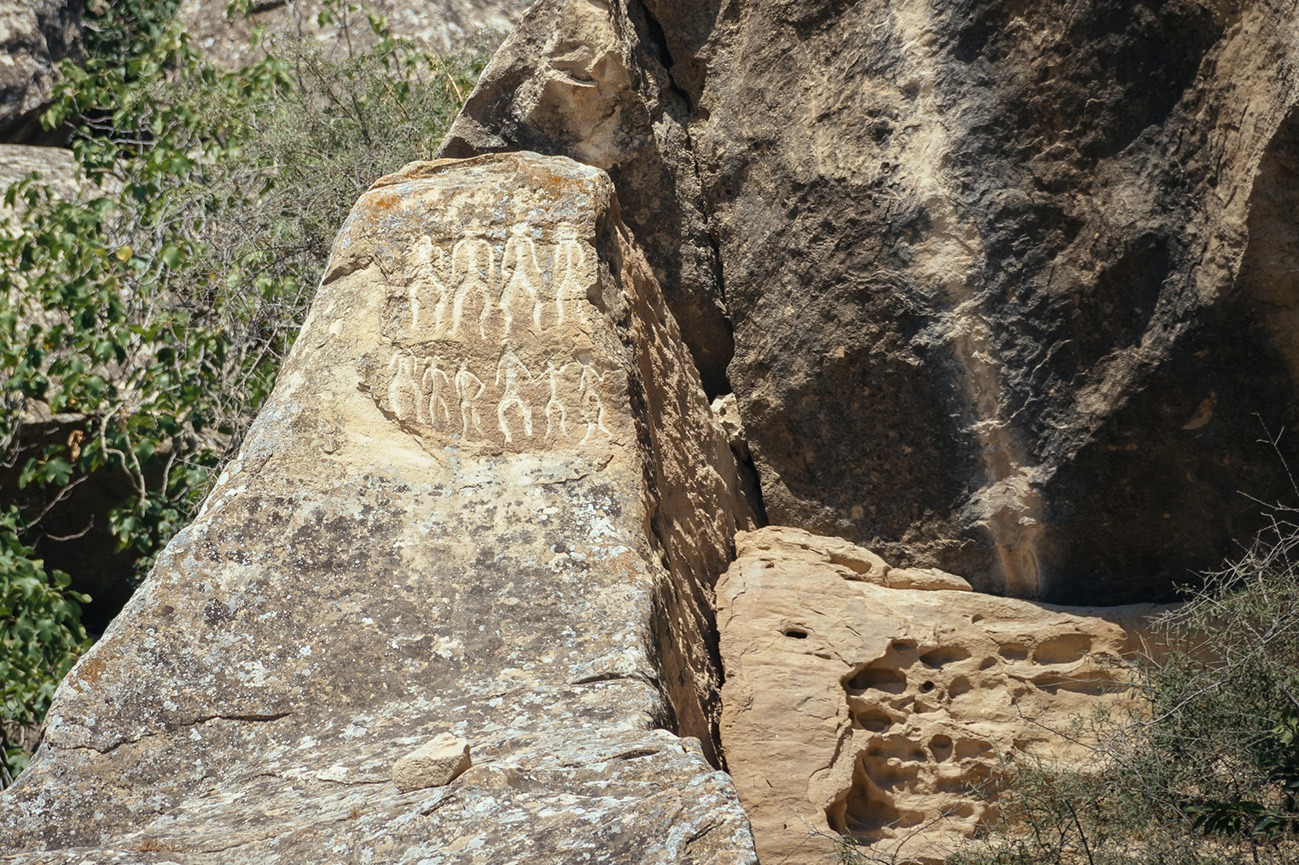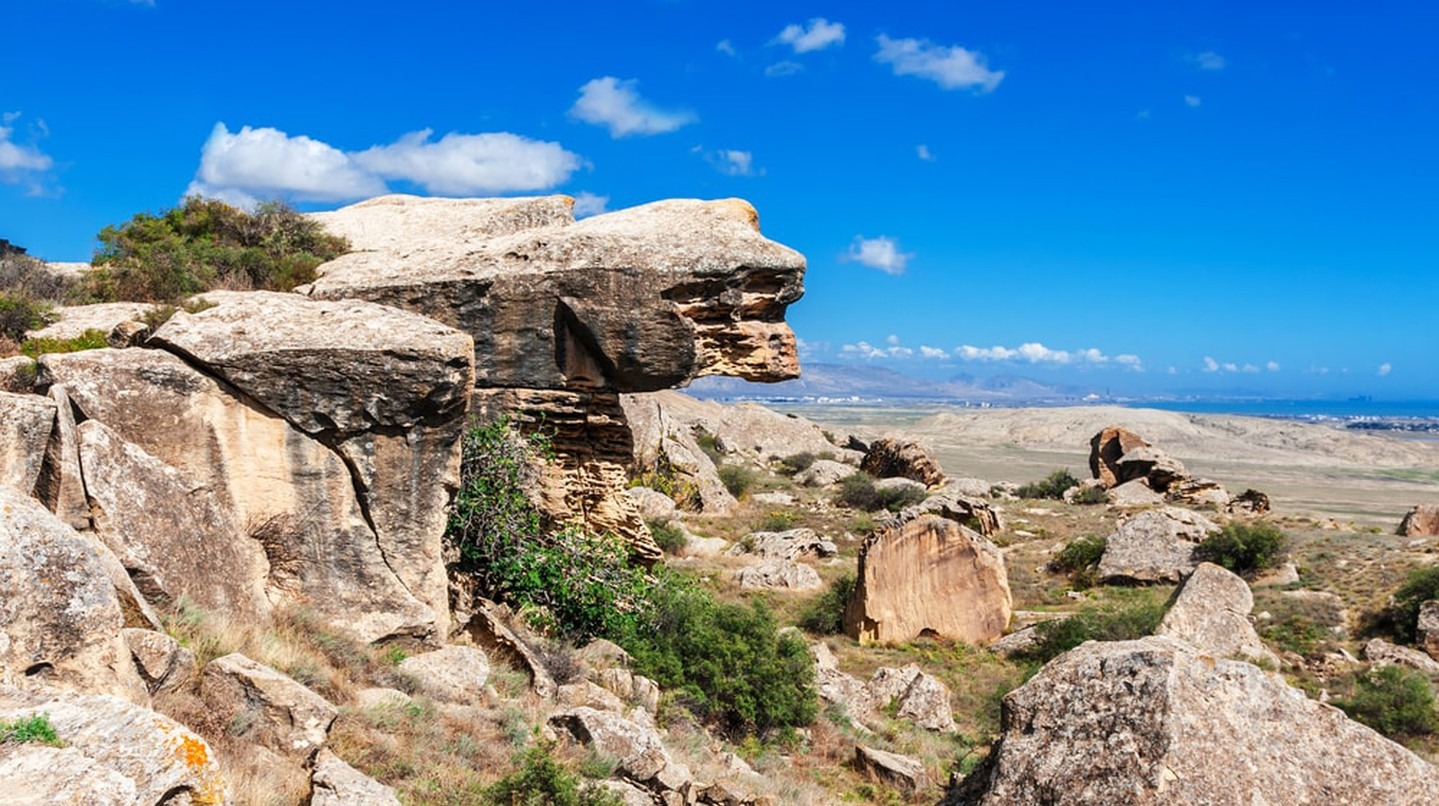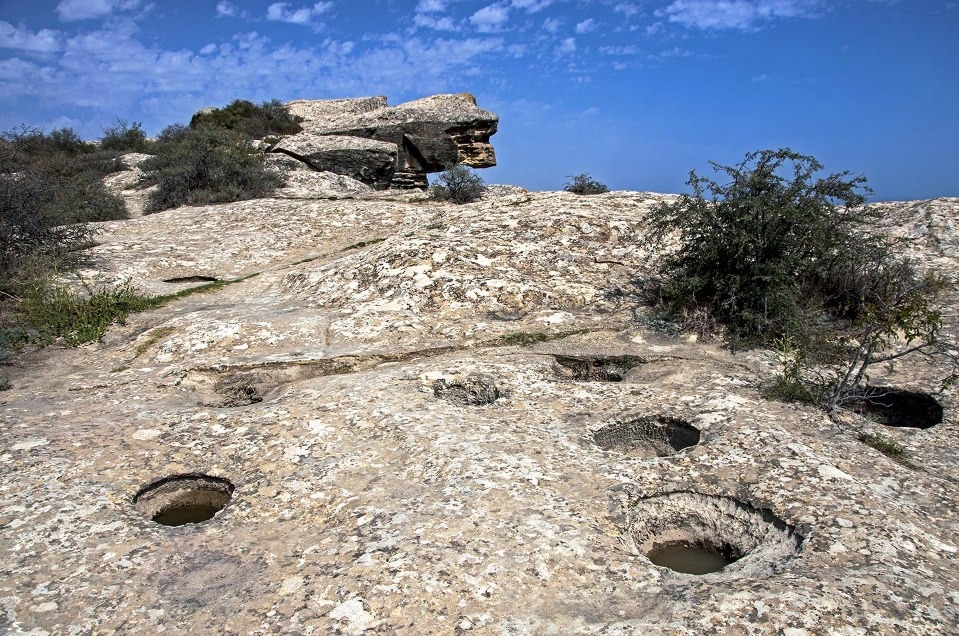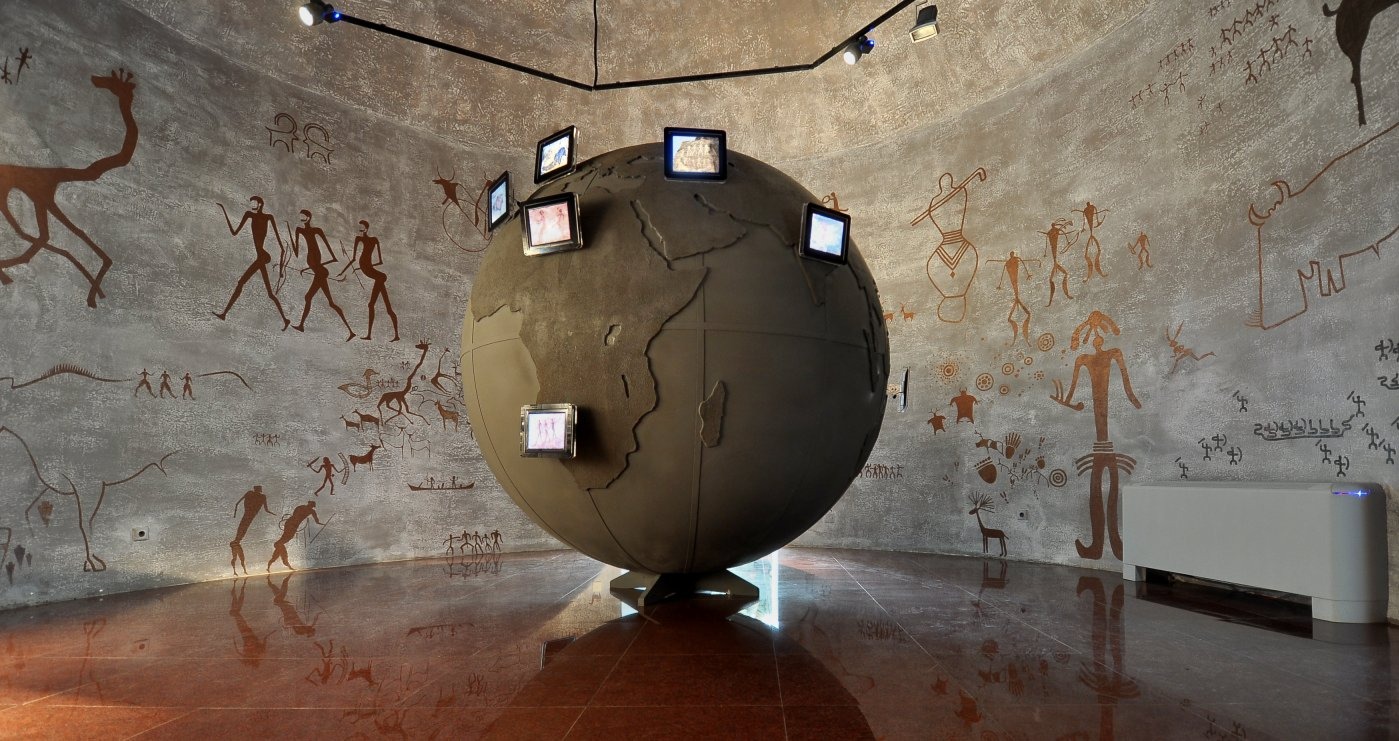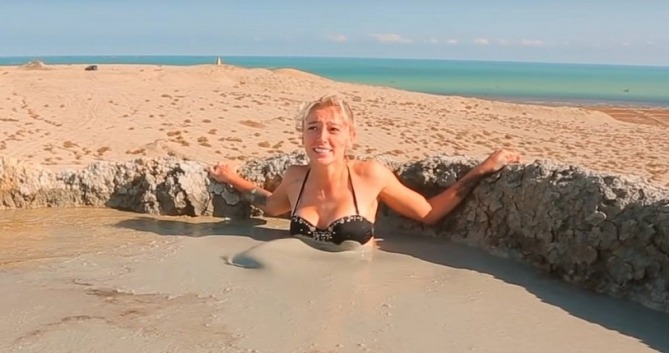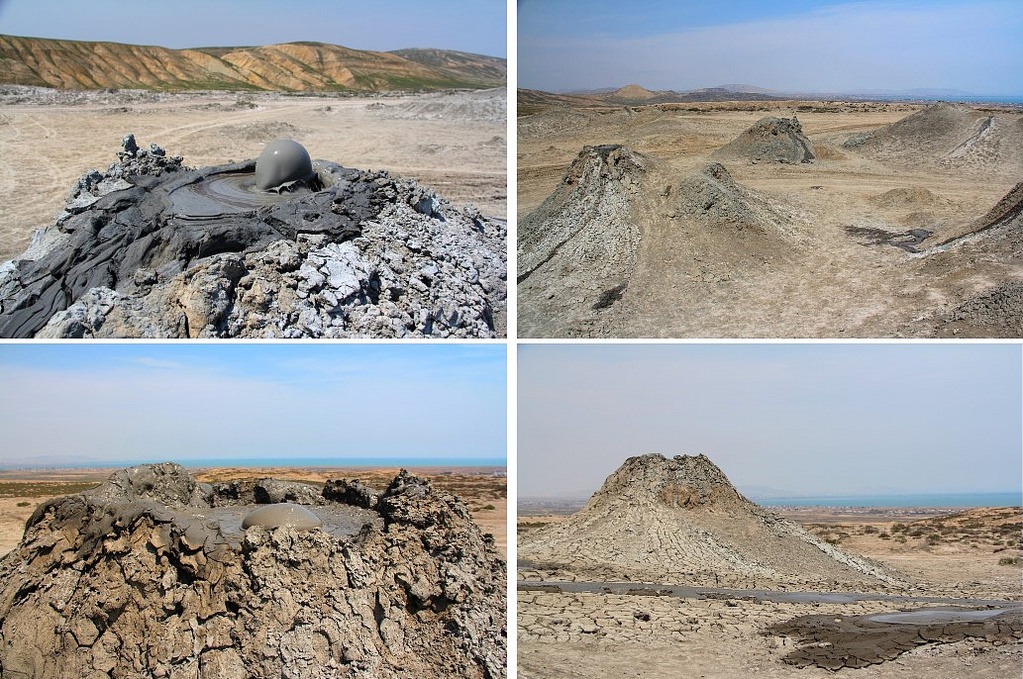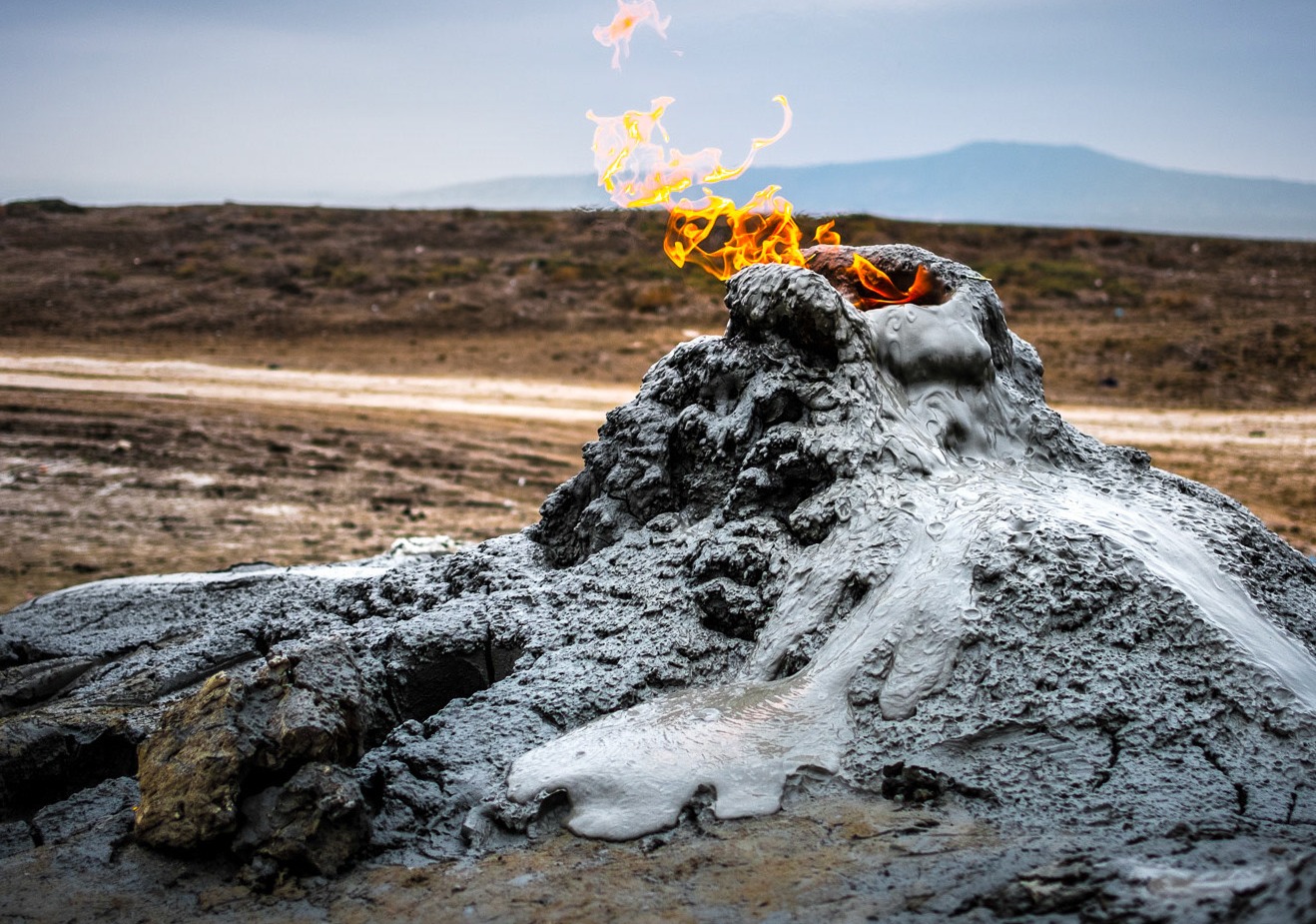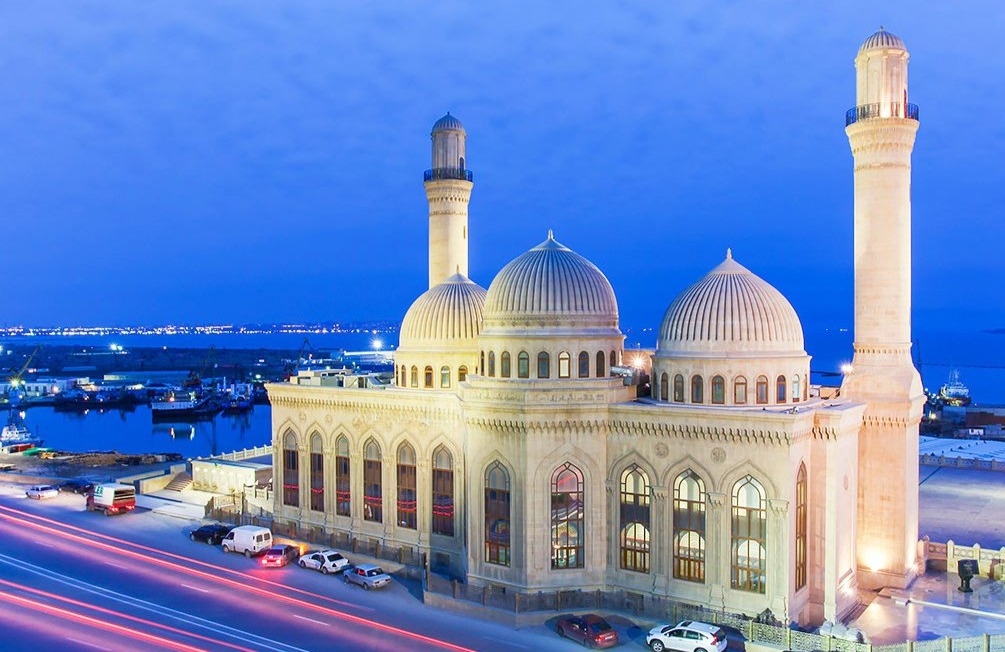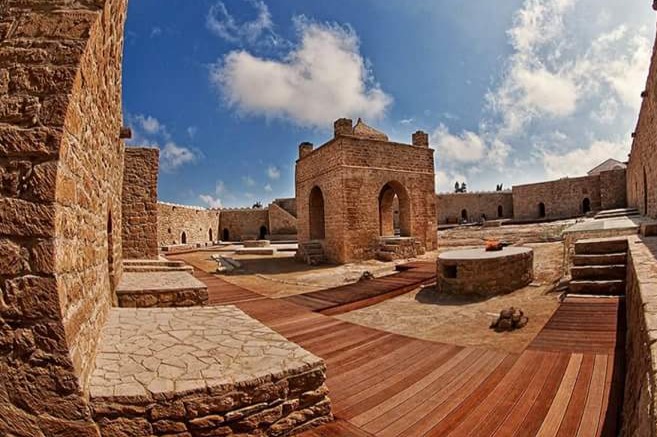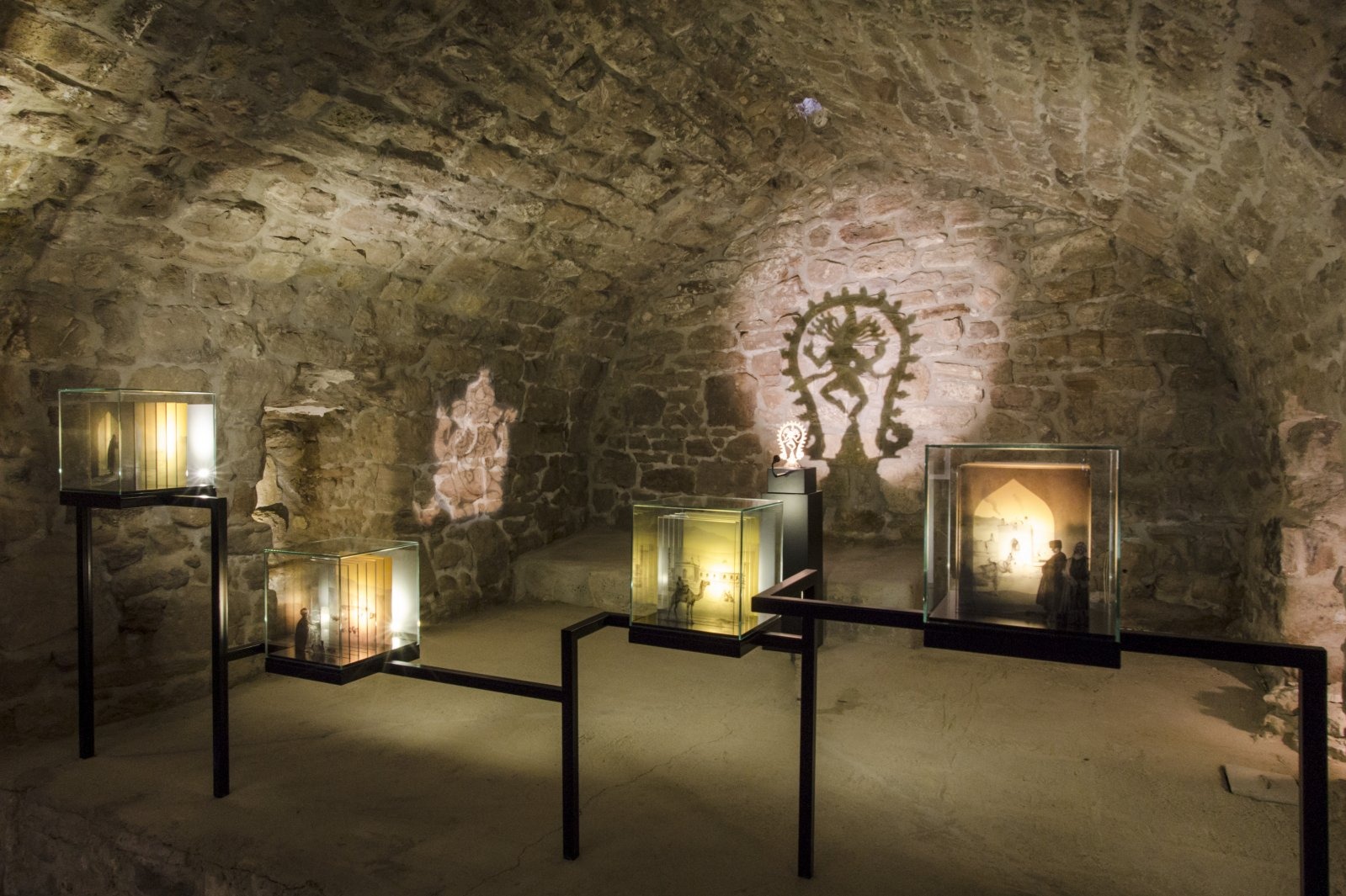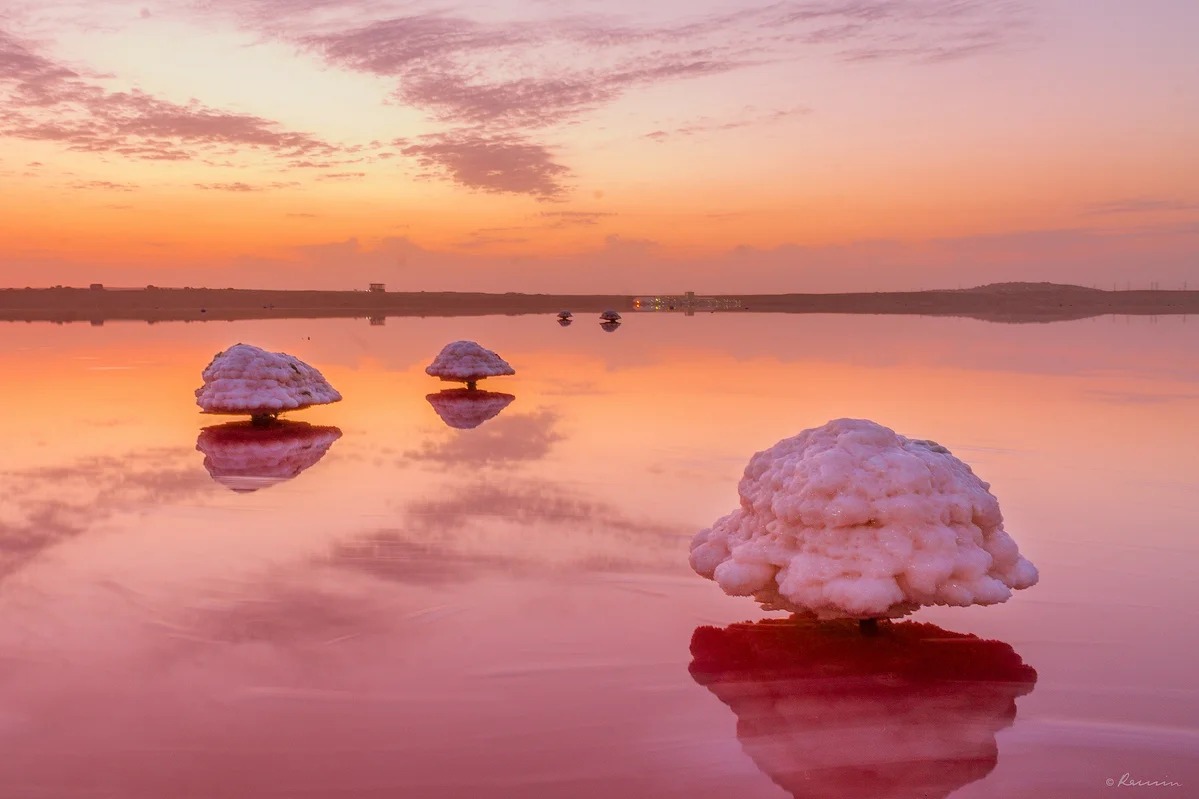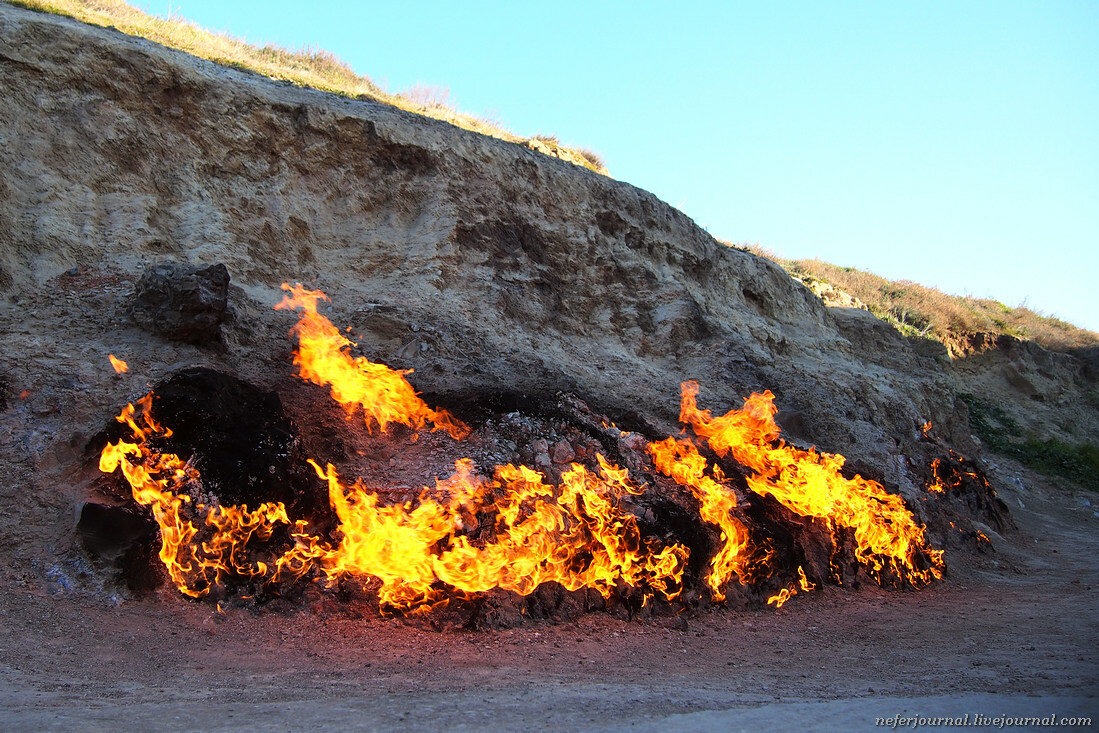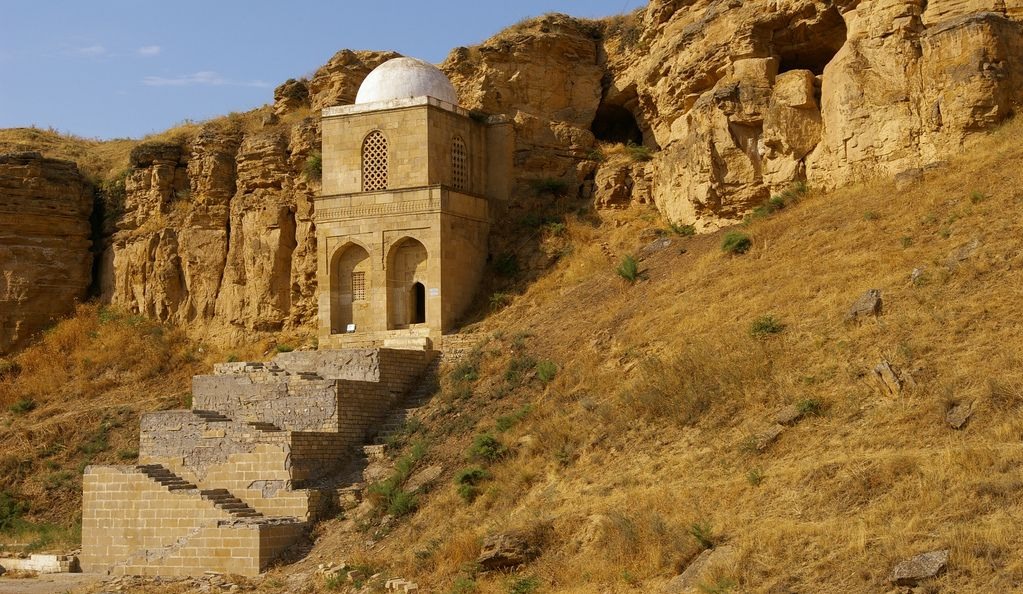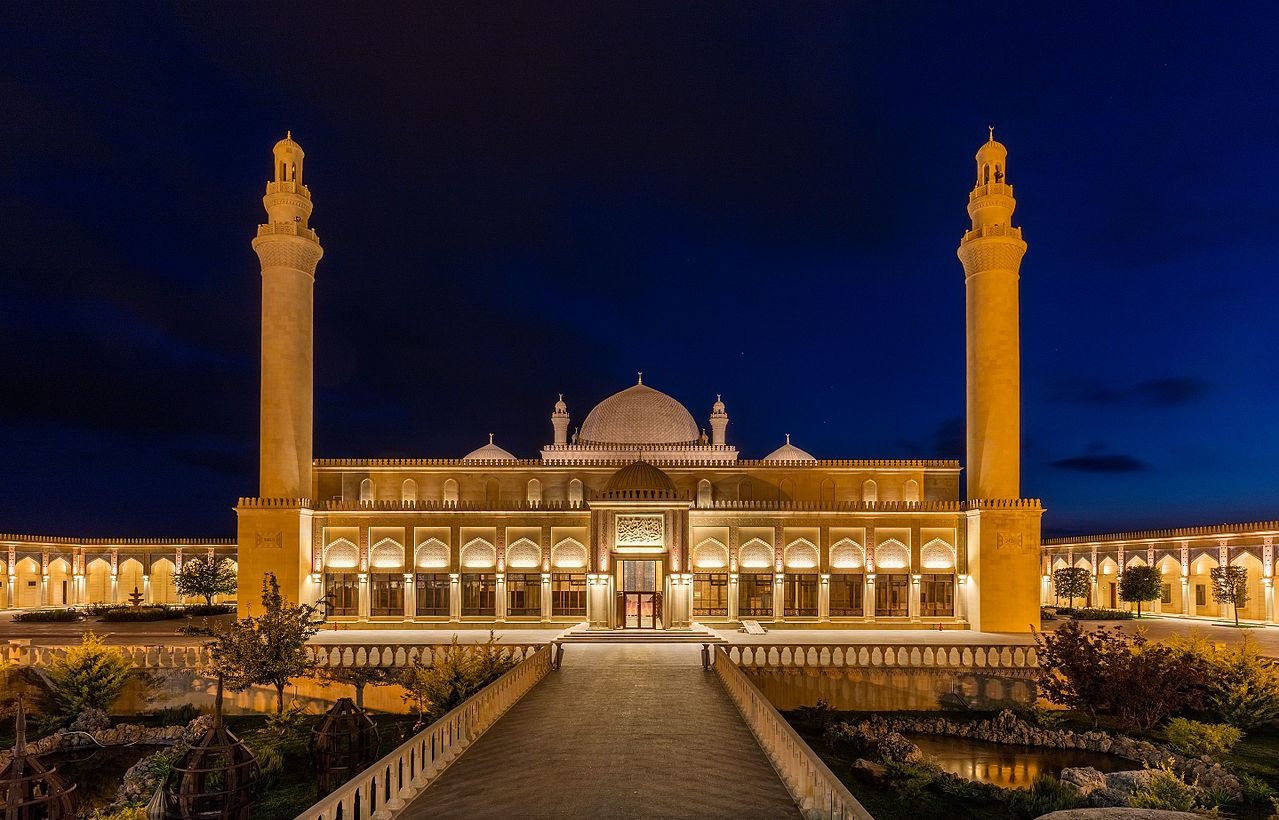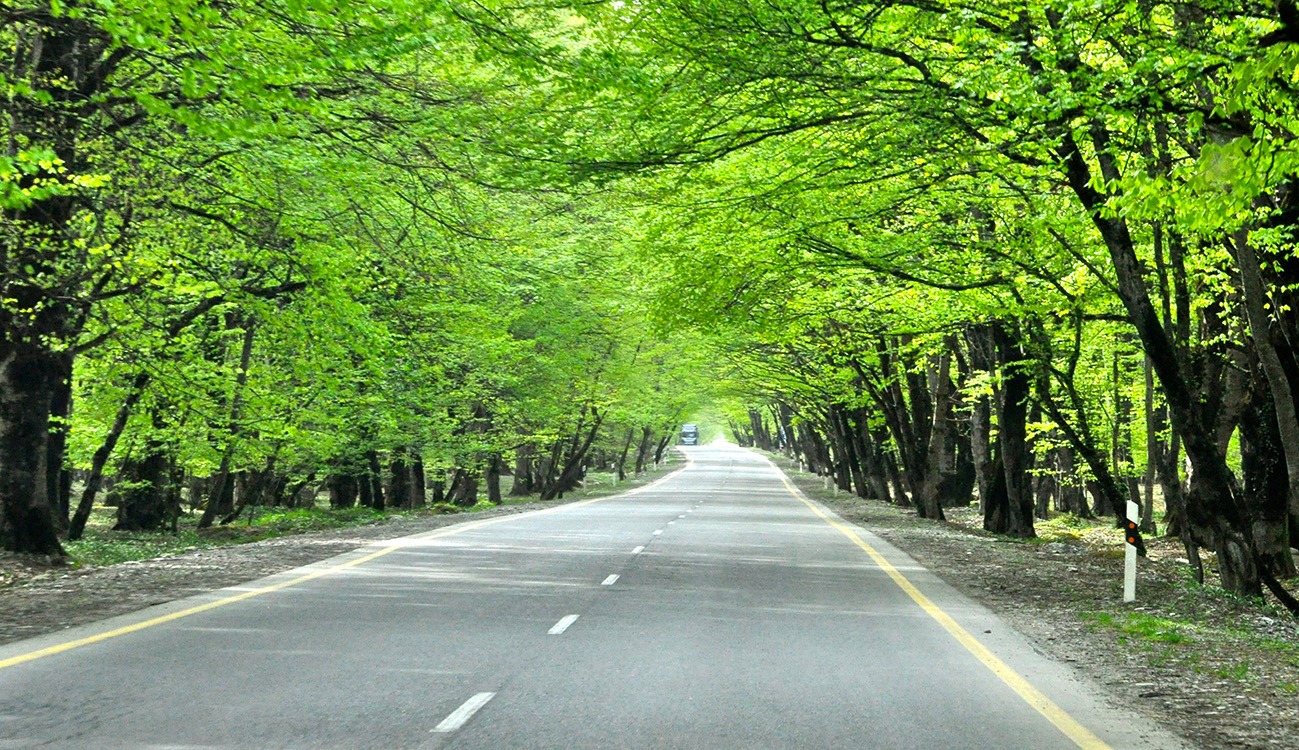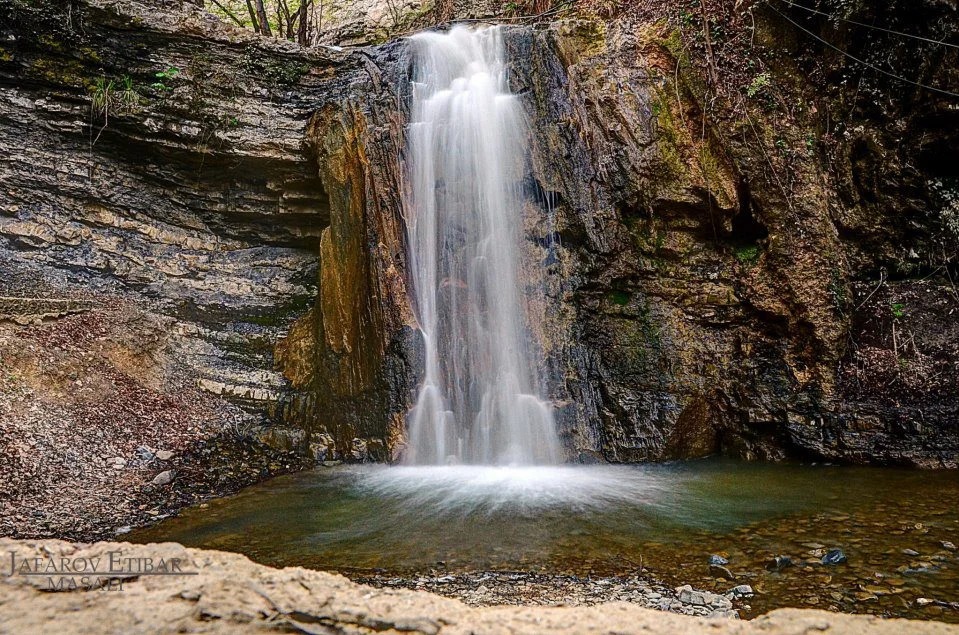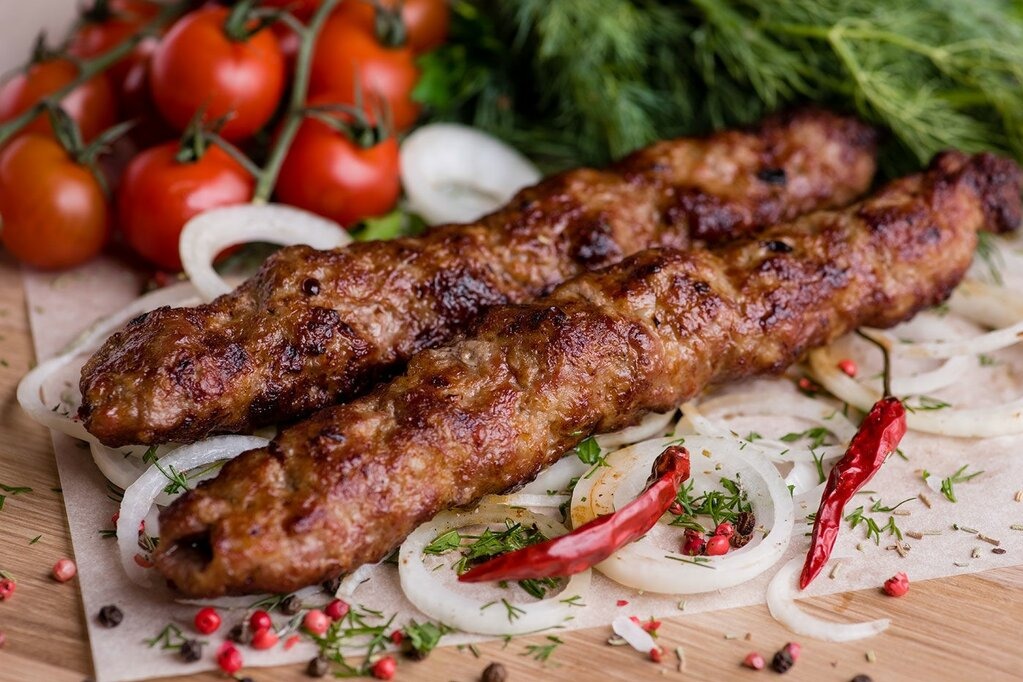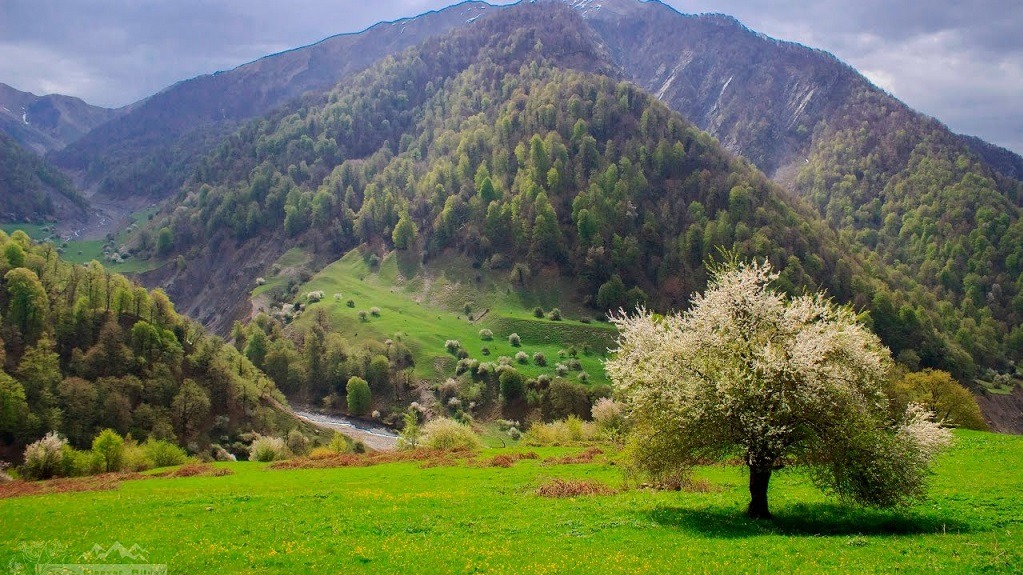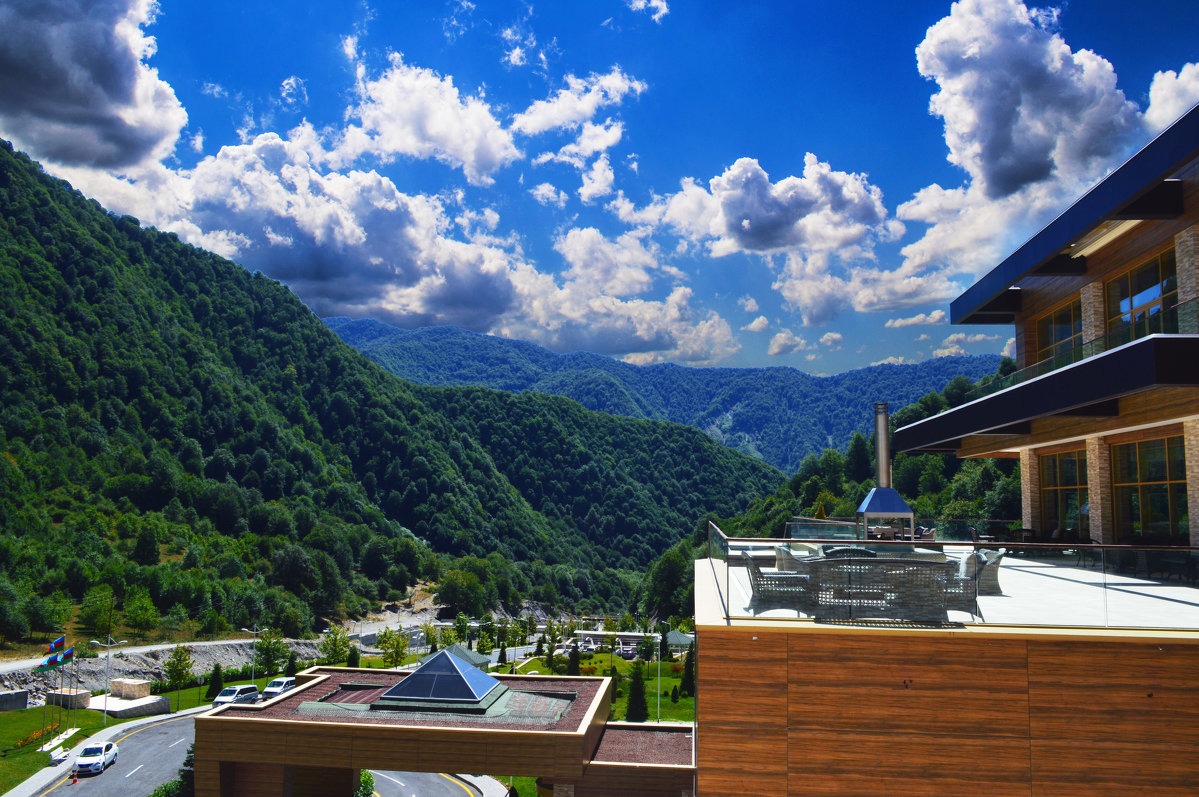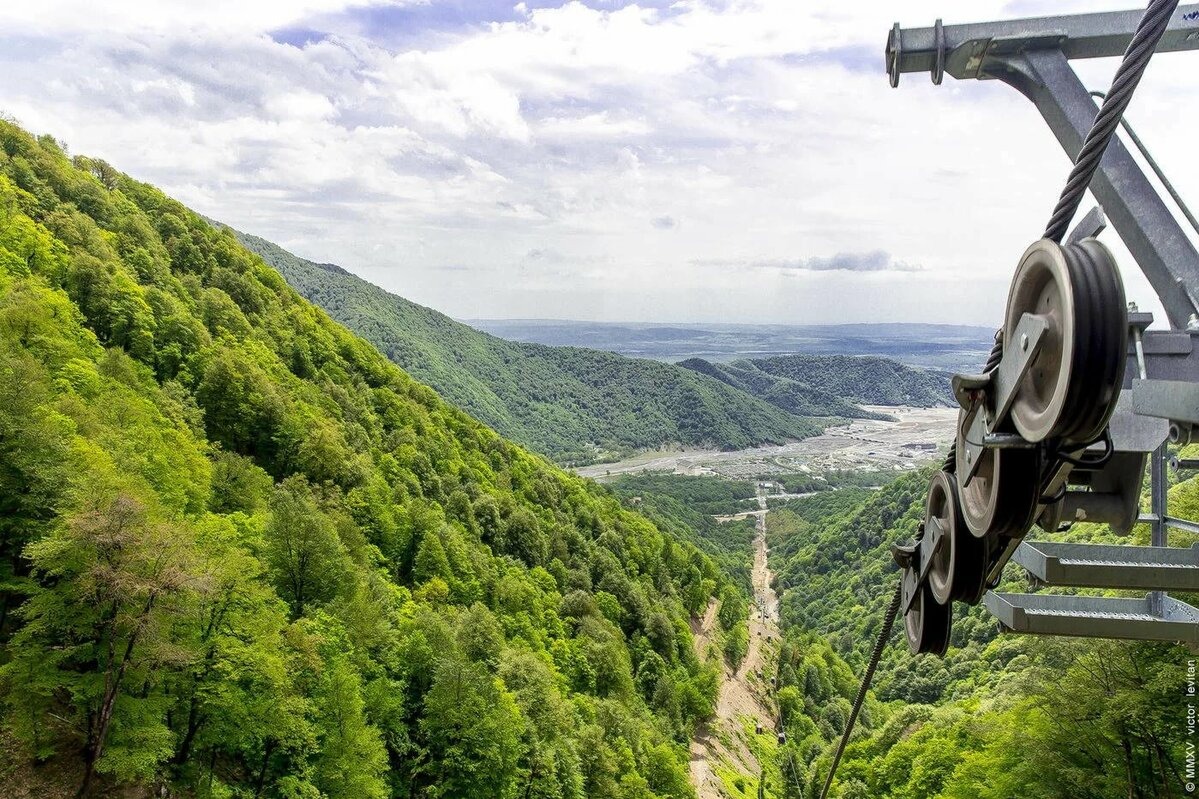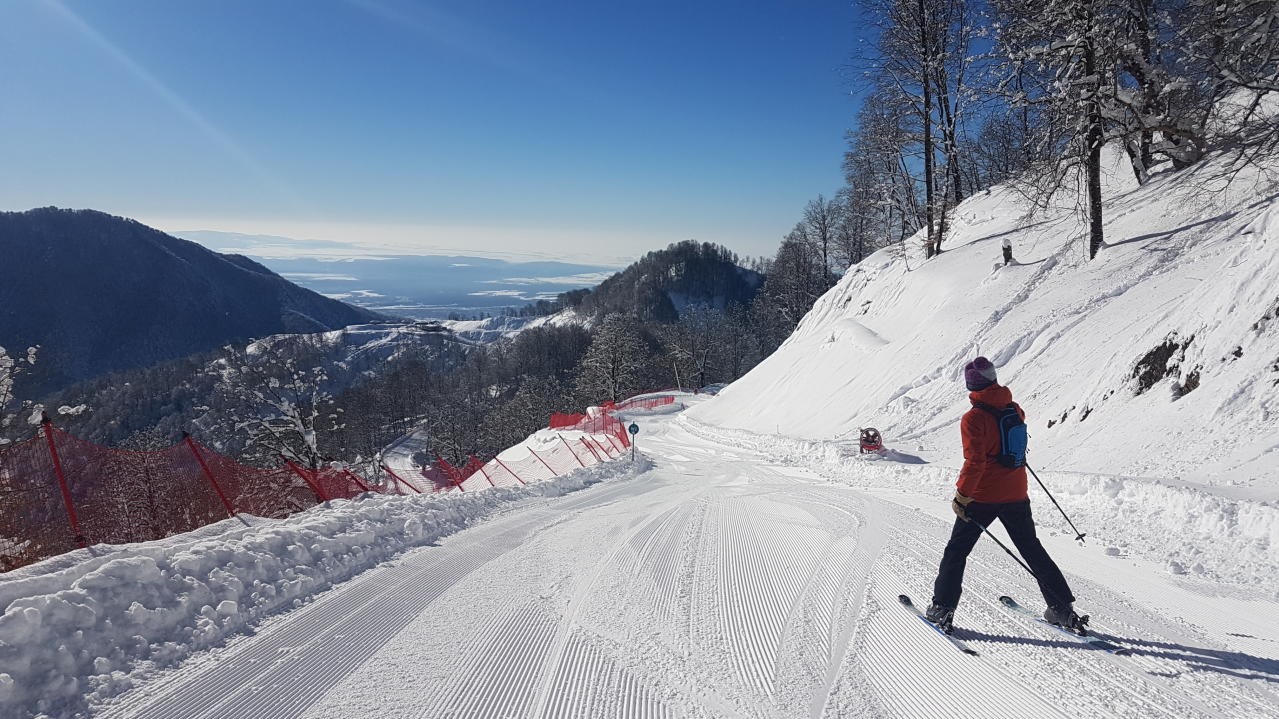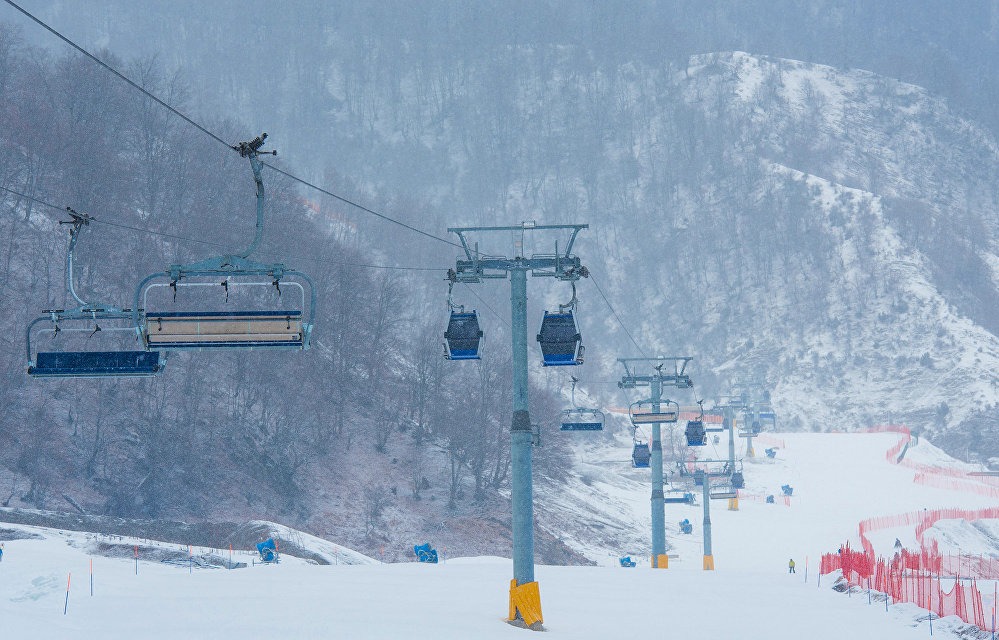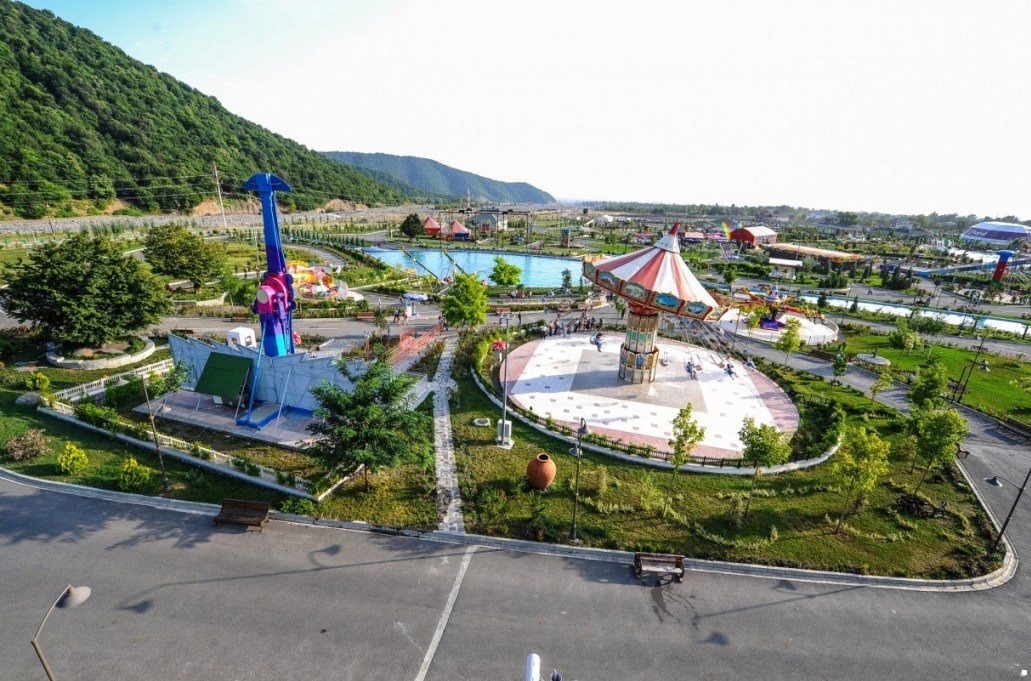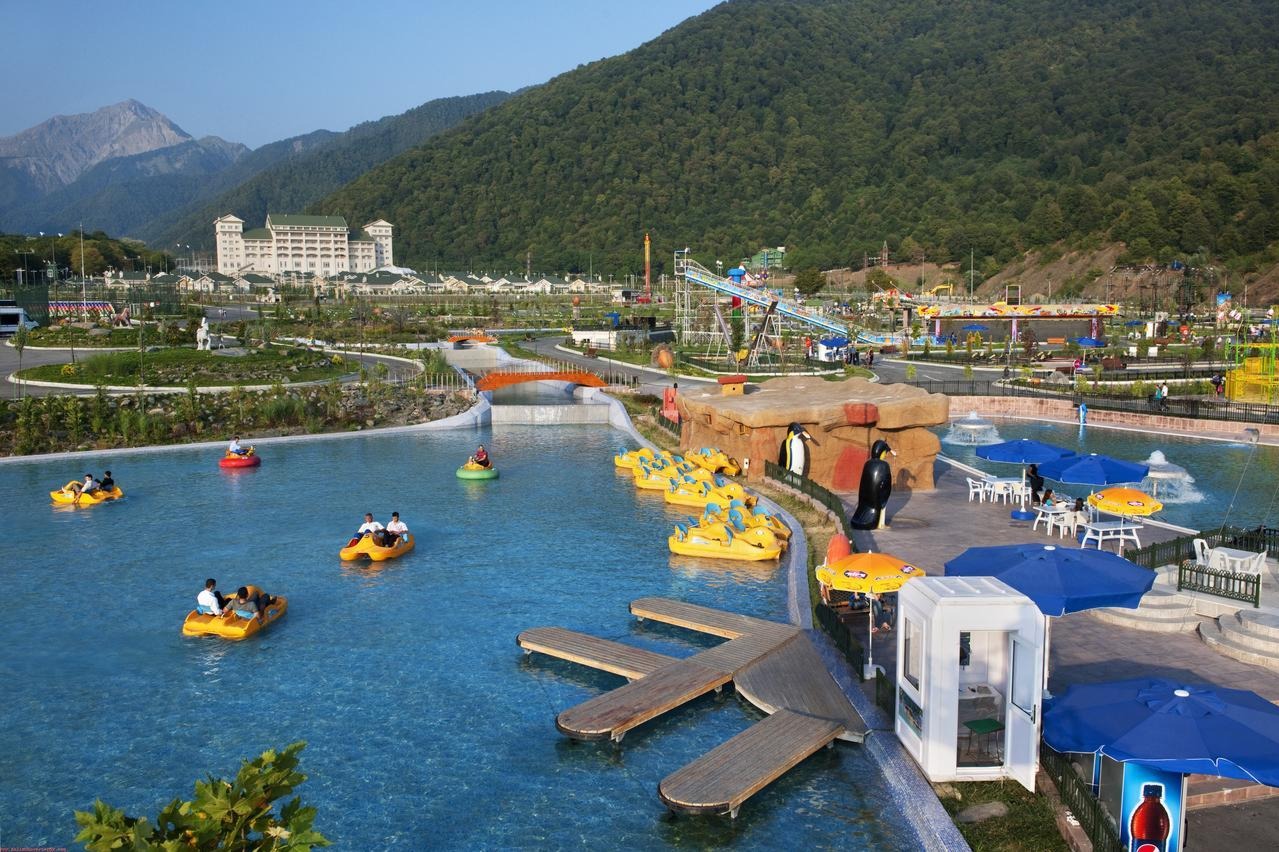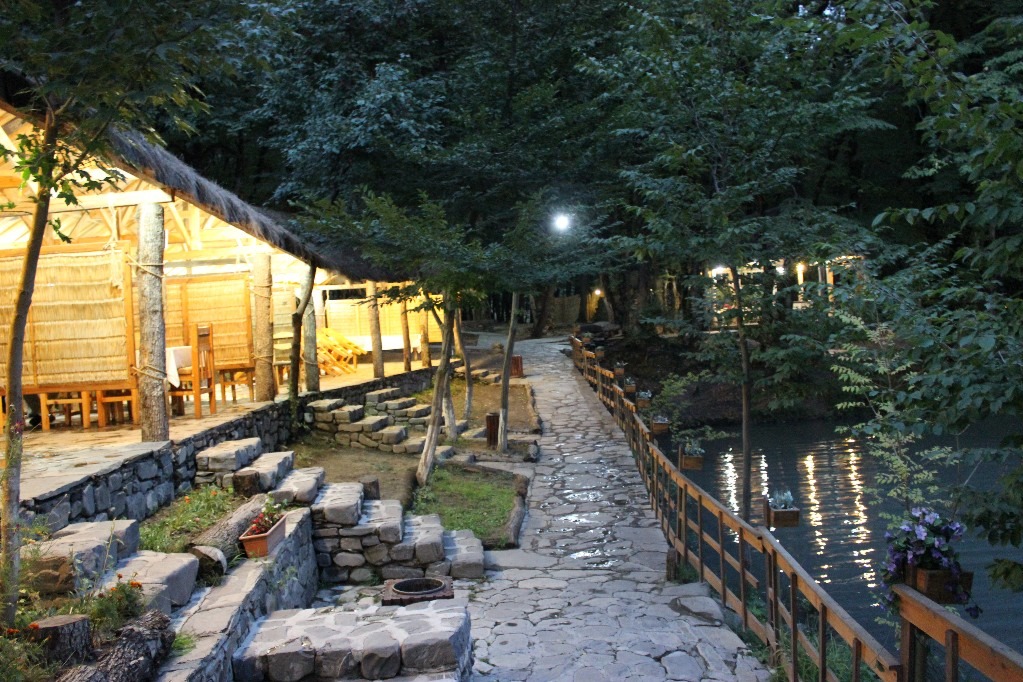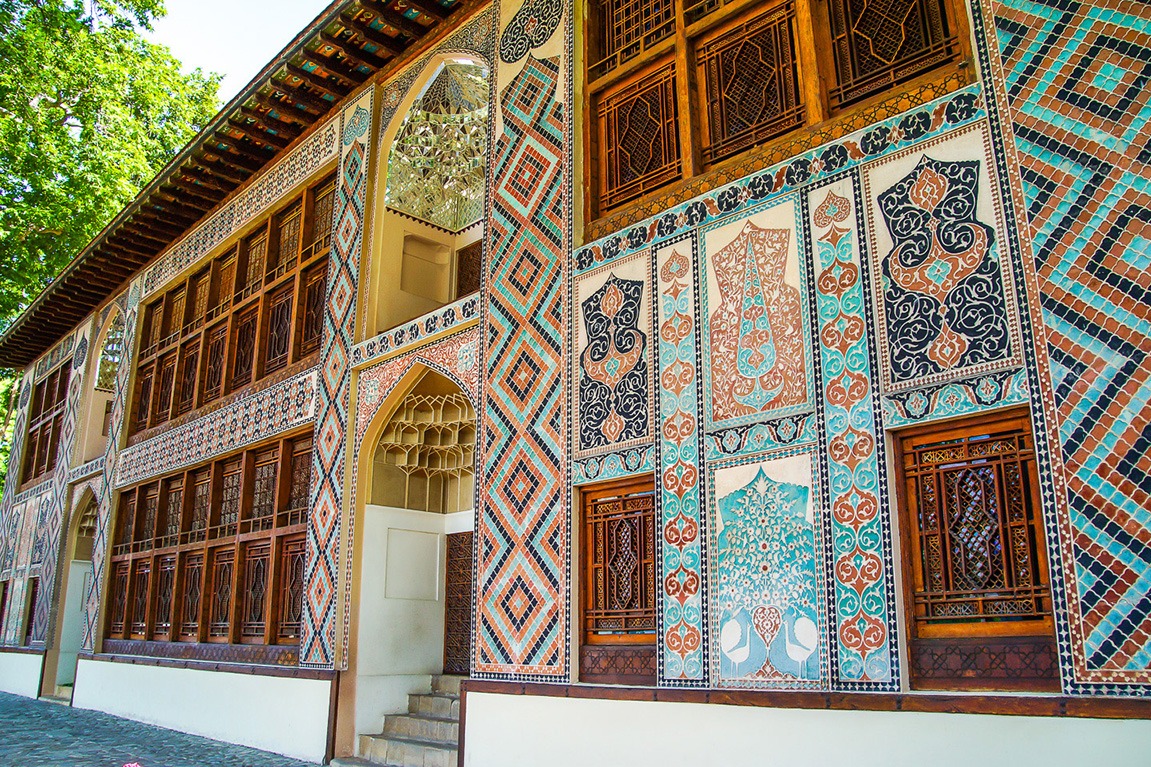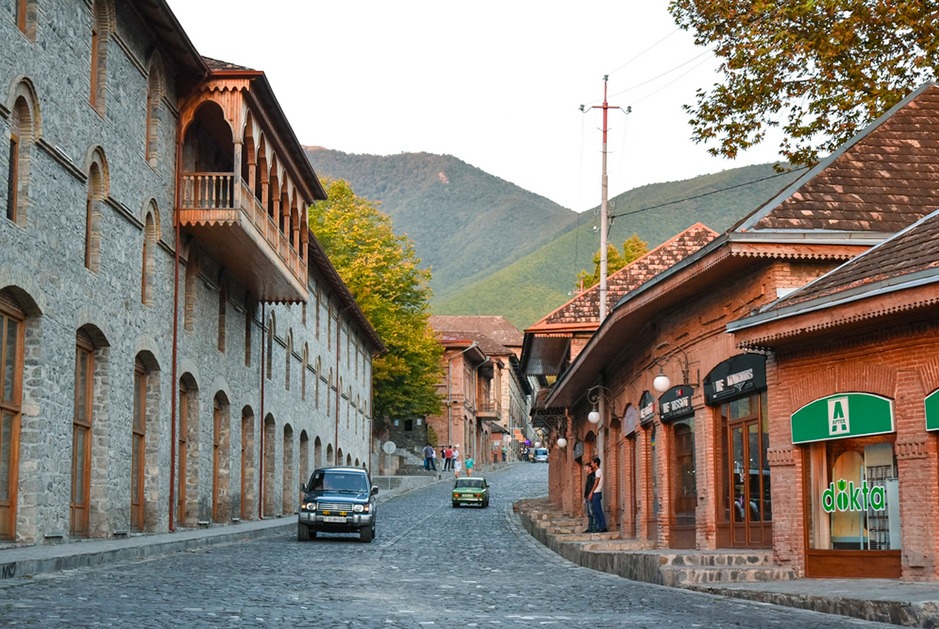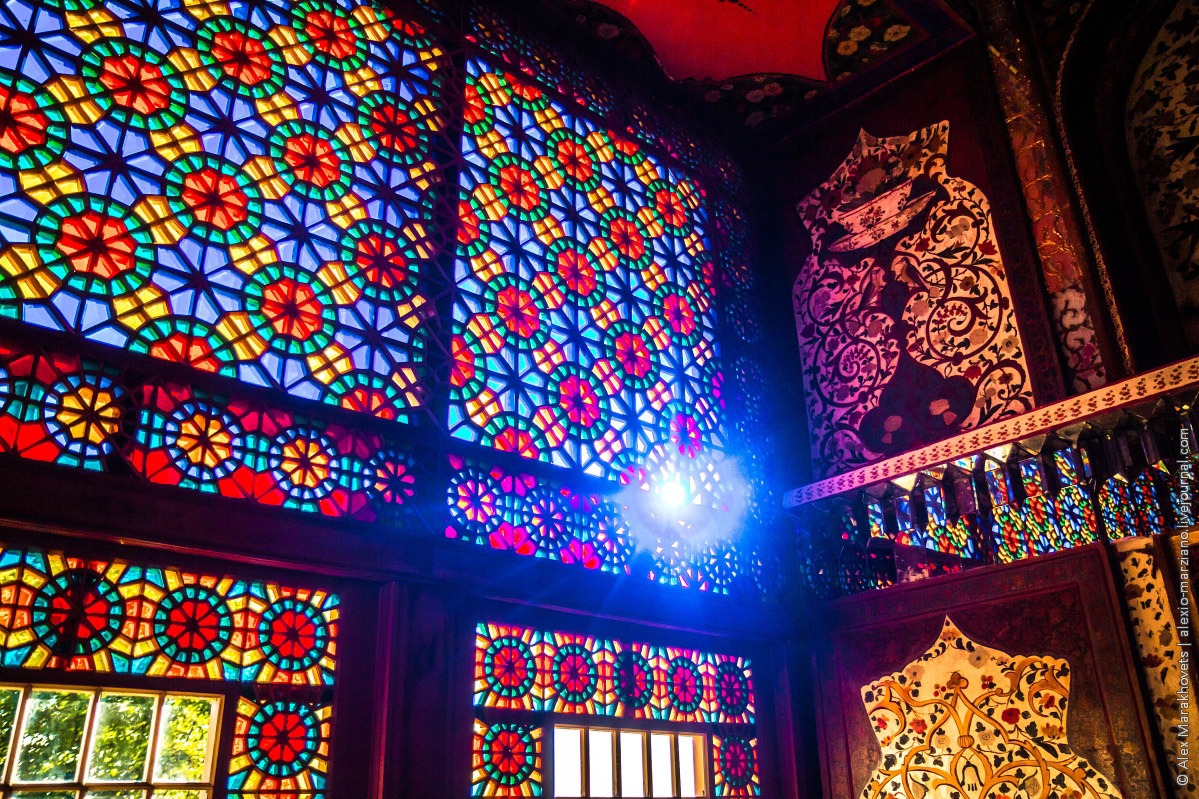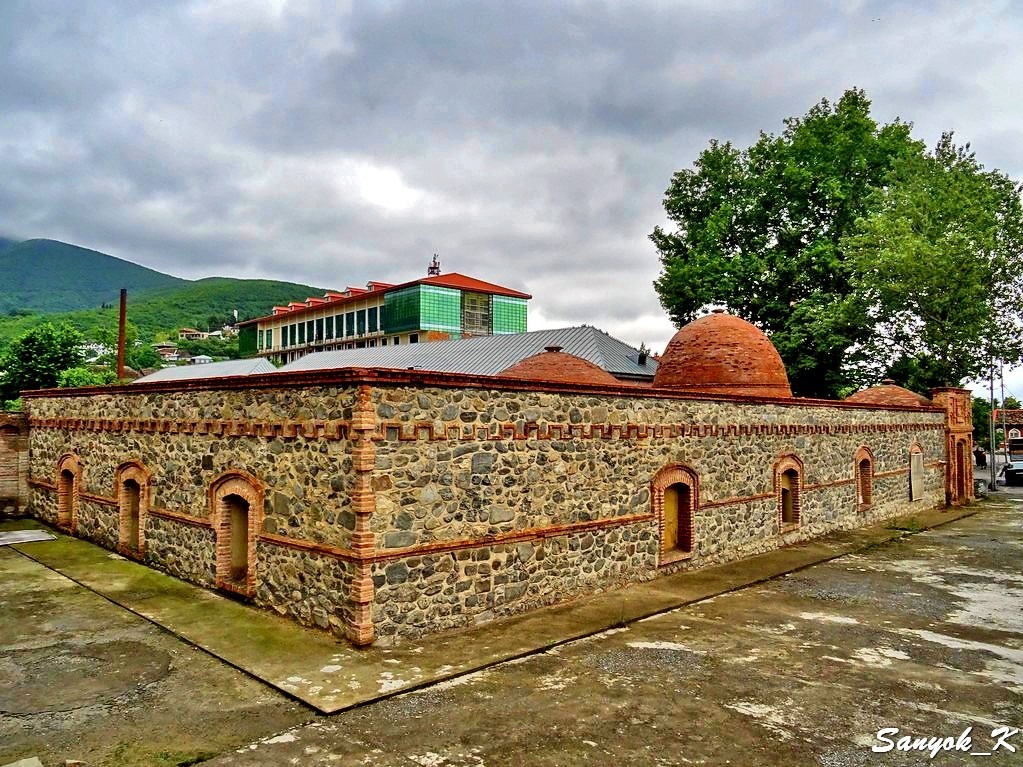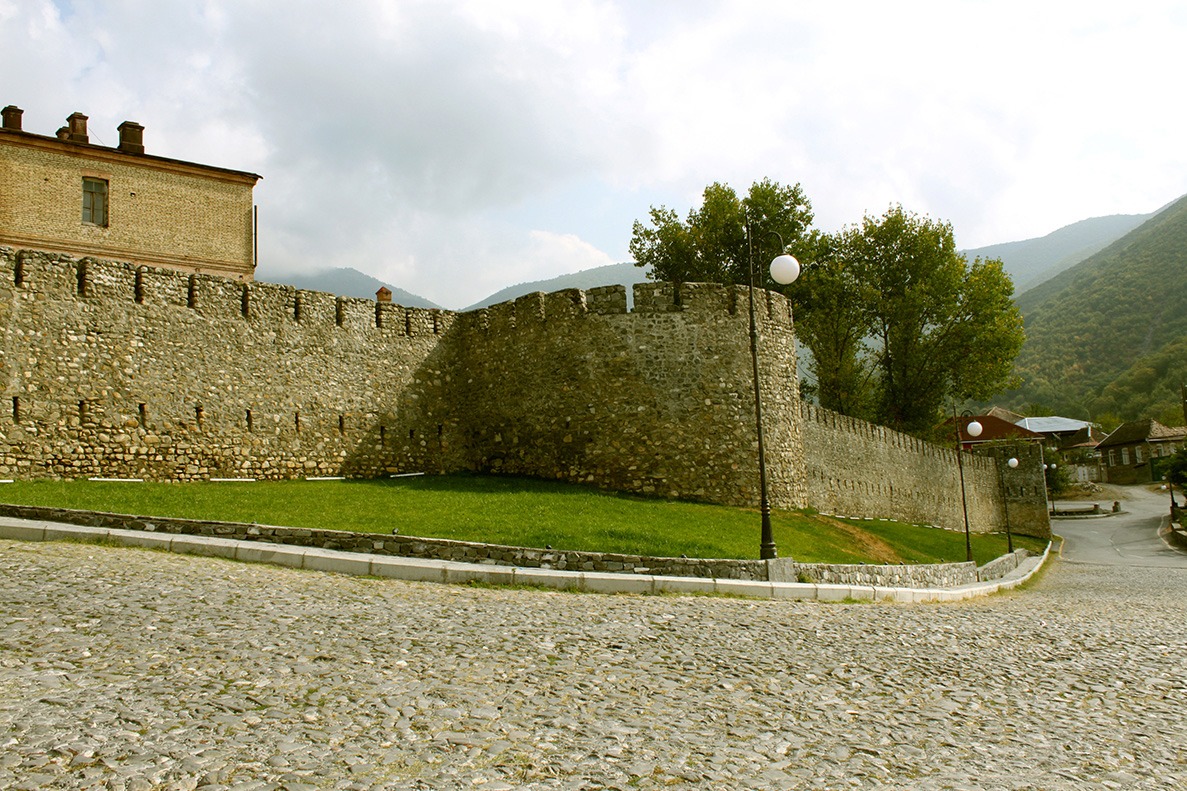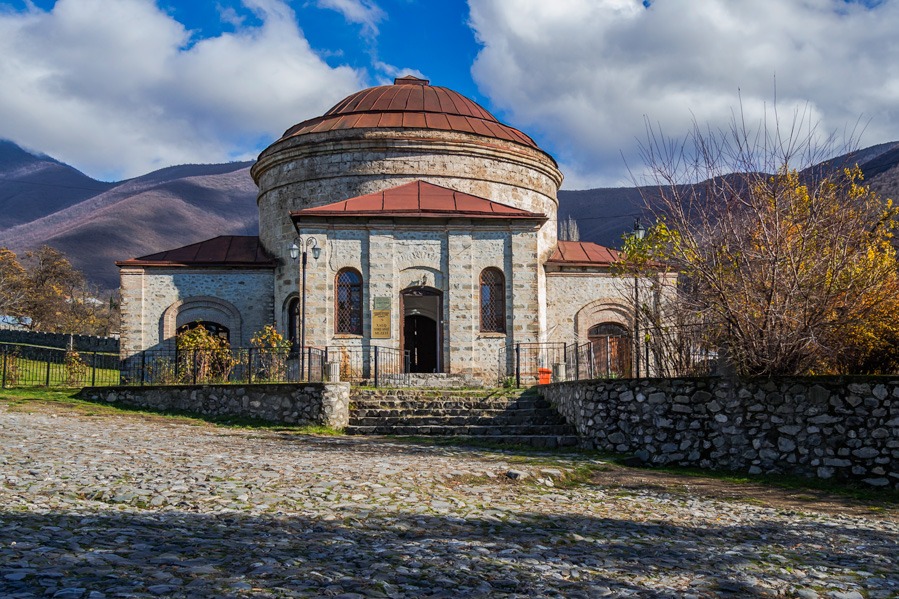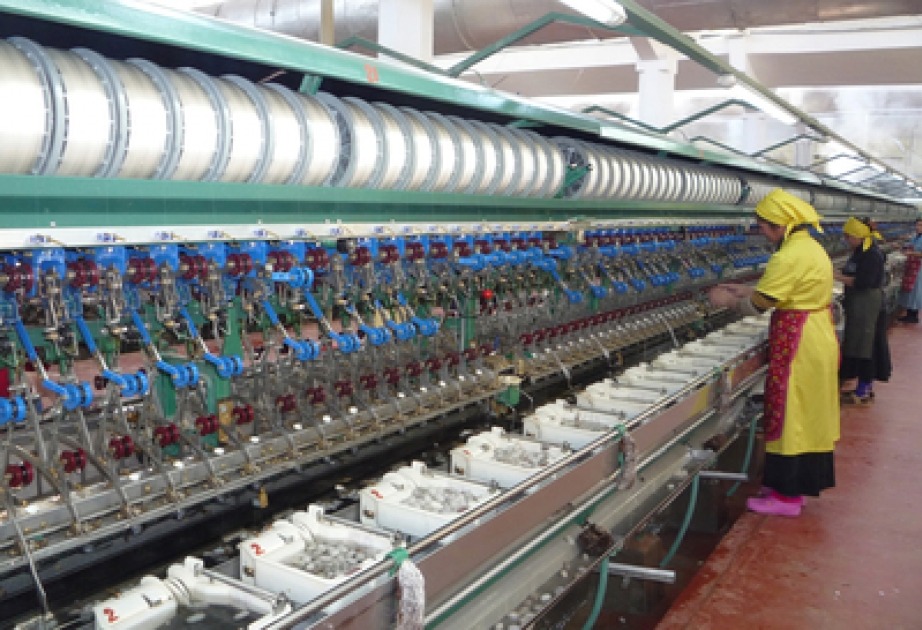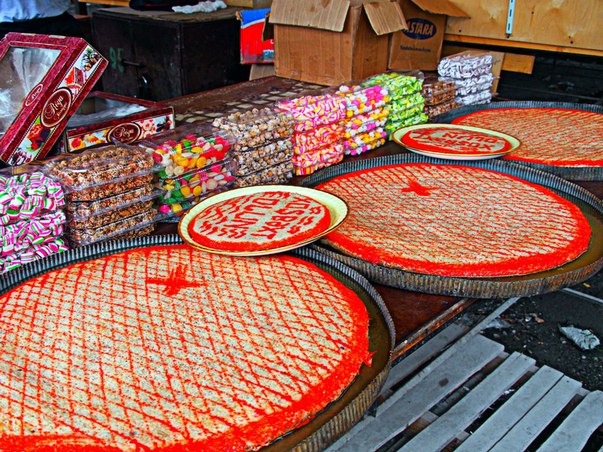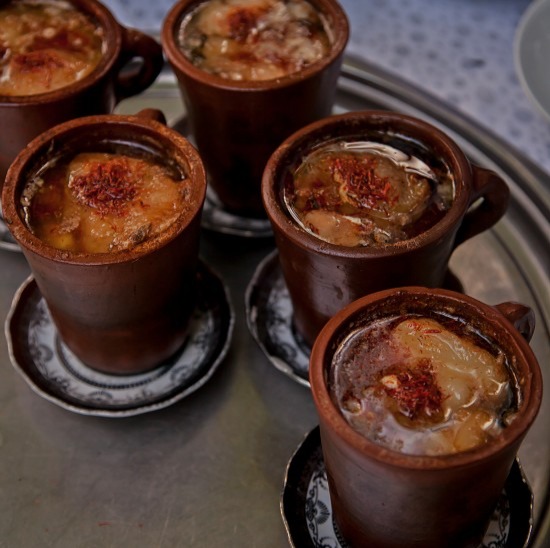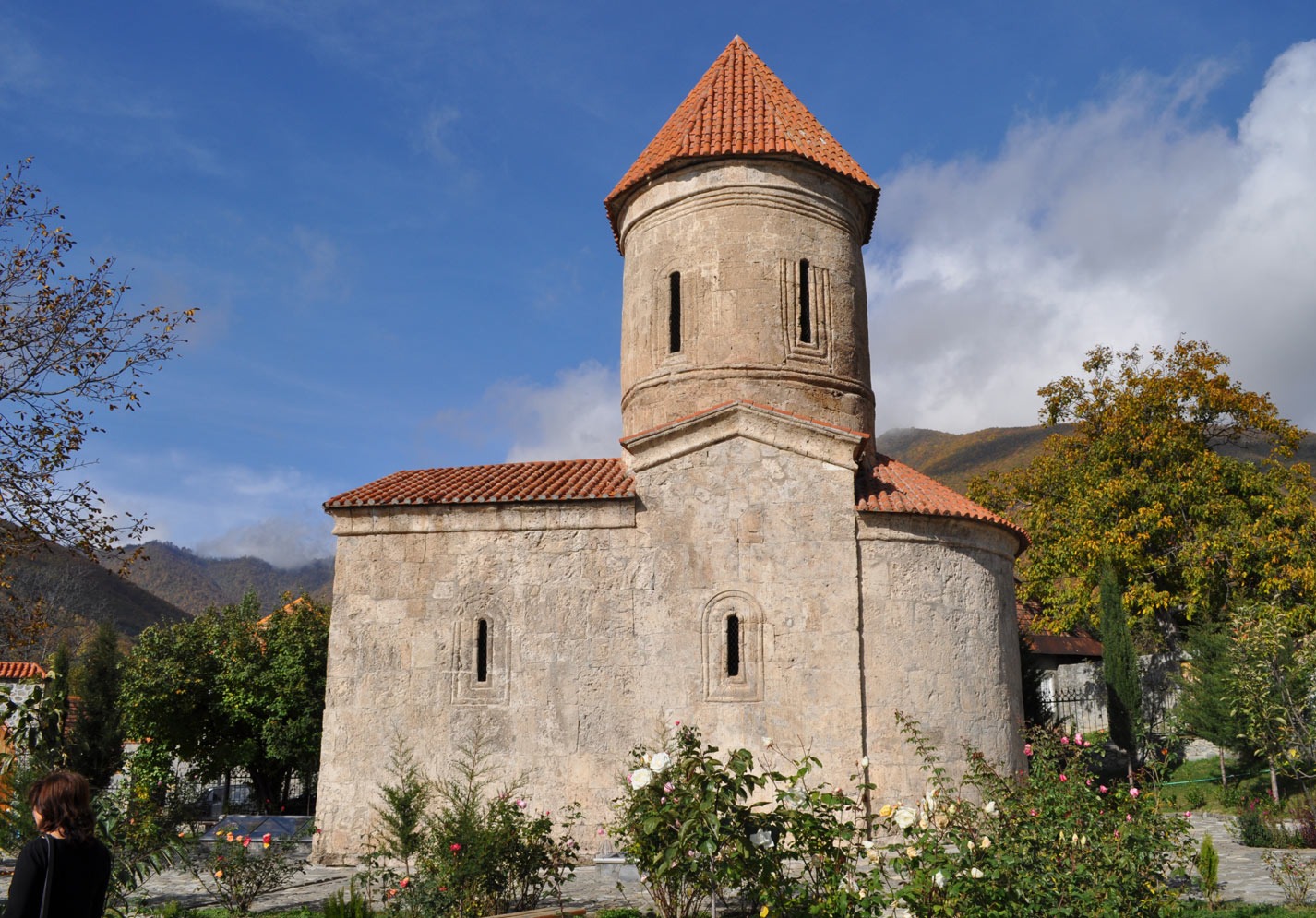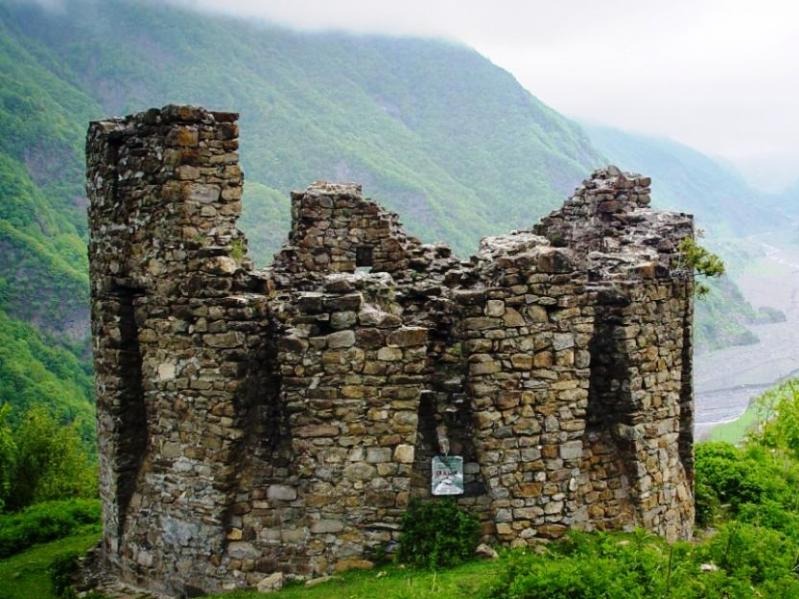Тур № 14
Multi-day tour in Azerbaijan and a trip to Georgia.
A special multi-day tour for tourists wishing to visit two countries at once - Azerbaijan and Georgia, during one trip to the Caucasus. You will get the opportunity to get acquainted with the history, culture, nature, cuisine of these two countries.1st day - Meeting at the airport, transfer to the hotel. At your request, and if the time of arrival in Baku permits, in the evening you can take a car tour of the night city. You will see Baku in all its colors.

2nd day - Sightseeing car tour of modern Baku and walking tour of the Old City. This is an excursion with which you can start your acquaintance with Azerbaijan. Baku is undoubtedly the most beautiful city in our country, its cultural, entertainment and tourist center. Here east and west, history and modernity intertwine. All this is very successfully combined in our beloved city and gives it a unique flavor. We will have a number of futuristic buildings on our way, the most famous of which are the Heydar Aliyev Center and the Flame Towers.The author of the Heydar Aliyev Cultural Center is the world famous architect Zaha Hadid. The building of the center was recognized as the best architectural structure in the world in 2014. The view of the flaming towers in the evening is simply mesmerizing.
Baku can be called the “City of Contrasts”. As a city in the famous film "The Diamond Arm", which by the way was filmed in its and the historical center "Icheri Sheher" - the old town. The Old City is the heart of Baku, and during our excursion we will definitely plunge into its amazing atmosphere. In the old city (Icheri-Sheher) we will see one of the symbols of Baku - the Maiden Tower, covered with romantic legends. We will see the residence of the ancient rulers - the Palace of the Shirvanshahs. Fortress or northern gates. Mosques built in different periods in this part of the city. Ancient caravanserais and market square, which were centers of social life in the old days. The ruins of the chapel of St. Bartholomew, who arrived in these places in the l century to preach Christianity. And also an integral part of the eastern culture of the hamam, some of which are still functioning today. In addition, we will walk through the places where the films "The Diamond Arm", "Tehran-43" and "Amphibian Man" were filmed
At your request, you can visit the oriental bazaar, where you can buy various sweets, dried fruits, nuts, spices and even natural black caviar, having tasted all this in advance while drinking natural Lankaran tea.
3rd day - Excursion to the world before our era, along the route Gobustan reserve, mud volcanoes, a mosque, a temple of fire worshipers, a pink lake, a burning mountain. During this tour we will take a kind of excursion into prehistoric times. We will visit a modern interactive museum in the village of Gobustan. We will visit the reserve, where the sites of ancient people and rock carvings created at various stages of history, starting from the 15th millennium BC, were discovered. up to the Middle Ages. A rather unusual phenomenon awaits you - active mud volcanoes. The temple of fire worshipers, at various times revered by Zoroastrians, Hindus and Sikhs. We will see a dead lake or a pink lake of Absheron. And Yanardag is a mountain that has been burning for several centuries. It was also reported by Marco Polo.
4.5 days - We are going with you inland to the Azerbaijani-Georgian border, along the route of Shamakhi, Gabala, Sheki, Balaken. This excursion begins with a visit to the mausoleum of Diri Baba, which means a living old man. This is a two-story mausoleum-mosque, built in 1402 on a site carved into a steep rock. Then we will visit the oldest mosque in Azerbaijan and the second in the entire Caucasus - Juma mosque (VIII-IX centuries) in the city of Shemakha (the city of the motherland of the Shemakhan queen from the fairy tales of A.S. Pushkin). In the Shamakhi region you can visit a winery, where you will have the opportunity to tour the winery and taste several types of Azerbaijani wines produced here using Italian technologies
Next, a picturesque mountain pass awaits us, from which breathtaking views open. In the village with the interesting name “Vandam” we will visit the waterfall “7 beauties”. It consists of 7 stages. We can have lunch here, in a restaurant next to the waterfall, or upon arrival in Gabala. Fortunately, a large number of restaurants and cafes function in the city itself. Some of them offer to enjoy their various dishes right in the bosom of nature, in the forest or by the river. The city of Gabala is surrounded by the highest mountains of the Caucasus - Bazaryurd, Bazarduzu, Tufandag. The mountain air is intoxicating here, picturesque rivers, waterfalls and lakes are pleasing to the eye. It is not for nothing that Gabala is often called "Azerbaijan's Switzerland".
Now Gabala is quite a modern European city. The streets of the city are striking in their cleanliness and well-groomed. In the vicinity of the city there are walnut and chestnut forests, many of which are over 100 years old. Here you will have a cable car ride at an altitude of 1251m. - 1660 m. Above sea level. Climbing above forests and mountain gorges, to the top, from where you will see the most beautiful views, will give you a lot of positive emotions. In the winter season, you can also go for a ride on a real ski track. Then we can visit the amusement park "Gabaland" at your request. This is a park with amazing rides, ice rink, go-kart and pool with slides. This complex is distinguished by a very beautiful area, with many trees, sculptures and artificial lakes, which will give an unforgettable experience for your whole family.
Overnight stay is provided in Sheki city. The next day in Sheki, we will visit the Sheki Khans Palace with luxurious wall paintings and openwork windows, located in a stone citadel. We will visit the ashagi (lower) and yukhari (upper) caravanserais. Usually, caravanserais were built in the form of castles with one gate, the closure of which, in case of danger, turned them into an impregnable fortress. We will see the medieval baths. The underground hamam (bathhouse) preserved in Sheki was built in the 19th century. It is located in a semi-basement, which is why it got its name "underground". For a long time it was abandoned, now it is being reconstructed. In Sheki, still grooms, continuing age-old traditions, come to wash in an old bath the day before the wedding. Museum of Folk and Applied Arts. The factory of the famous Sheki silk. We will have lunch in Sheki with a special local dish piti - a rich soup that is best prepared in this region. Piti is prepared in clay pots, which should be simmering in the oven for at least 8 hours. Next, we will have a tasting of Sheki honey baklava and the opportunity to purchase it in local family pastry shops. We will also visit a Christian church in the village of Kish. An ancient Albanian temple, a unique monument of antiquity, created in the 1st century AD. It is assumed that the temple was founded by the Apostle Elisha, who brought Christianity to Albania (Caucasian Albania is a state that existed on the territory of Azerbaijan from the 1st century BC to the 5th century). And also the remains of the impregnable fortress Gelersen-Gerersen ("You come and see" Vlll - lX century).
Presumably, the foundation of the fortress was laid in the 12th century. Currently, its picturesque ruins can be seen on the banks of the Kish River, which is 4 kilometers from Sheki. The fortress is located on the top of Mount Garatepe. For many years, she faithfully guarded the approaches to the city from foreign invaders.
Presumably, the foundation of the fortress was laid in the 12th century. Currently, its picturesque ruins can be seen on the banks of the Kish River, which is 4 kilometers from Sheki. The fortress is located on the top of Mount Garatepe. For many years, she faithfully guarded the approaches to the city from foreign invaders.
Then we head to customs. A guide from Georgia will meet you at the border and you will continue your journey through the territory of Georgia.The duration of the excursion is 5 days.
What is included: guide services, transportation.
What's not included: meals, tickets to museums, Gabaland and the Tufandag Winter Summer Complex.Excursion cost: on requestAdditional information - there may be changes in the schedule at your request and bringing the tour to Tbilisi. Also you can choose 1 or some of these tours. The reverse variant of the tour is also possible if you are going from the Azerbaijani-Georgian border or from Tbilisi to Baku.
What is included: guide services, transportation.
What's not included: meals, tickets to museums, Gabaland and the Tufandag Winter Summer Complex.Excursion cost: on requestAdditional information - there may be changes in the schedule at your request and bringing the tour to Tbilisi. Also you can choose 1 or some of these tours. The reverse variant of the tour is also possible if you are going from the Azerbaijani-Georgian border or from Tbilisi to Baku.
Order online
By leaving a request, you agree to the processing of personal data
